
ODEON OF HERODES ATTICUS
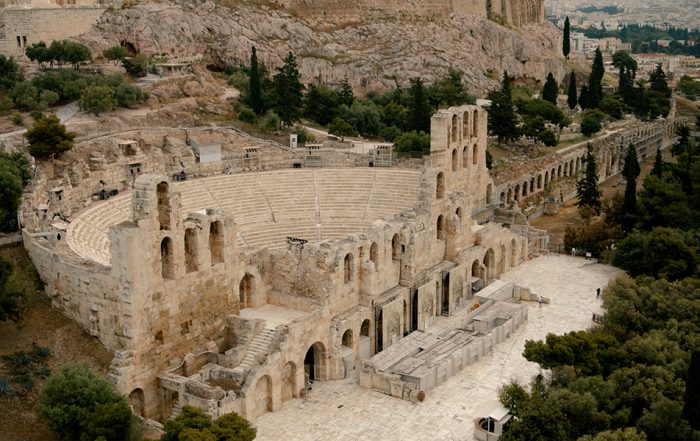
OPERA / PREMIERE
1, 4, 7, 10 June
GREEK NATIONAL OPERA
VASSILIS CHRISTOPOULOS – OLIVIER PY
Madama Butterfly by Giacomo Puccini
Following the enormously successful Wozzek (2020), world-renowned French director Olivier Py, Artistic Director of Théâtre du Châtelet in Paris and former director of Festival d’Avignon (2014-2022), returns to the Greek National Opera. This time he is set to direct one of Puccini’s most popular masterworks, Madama Butterfly, on the stage of the Odeon of Herodes Atticus. Idiosyncratic aspects of the Japanese musical tradition, climaxes, chamber music qualities and outbursts alongside the entire orchestra lend Butterfly its unique character and breathe a special life into it. The production is realized with support from the Stavros Niarchos Foundation, aiming to enhance the GNO’s artistic outreach.
Conductor Vassilis Christopoulos • Directed by Olivier Py • Set and costume design Pierre-André Weitz • Lighting design Bertrand Killy • Chorus master Agathangelos Georgakatos • Cast Cellia Costea (Cio-Cio San), Alisa Kolosova (Suzuki), Andrea Carè (B. F. Pinkerton), Dionysios Sourbis (Sharpless)
With the GNO Orchestra, Chorus and Soloists
*
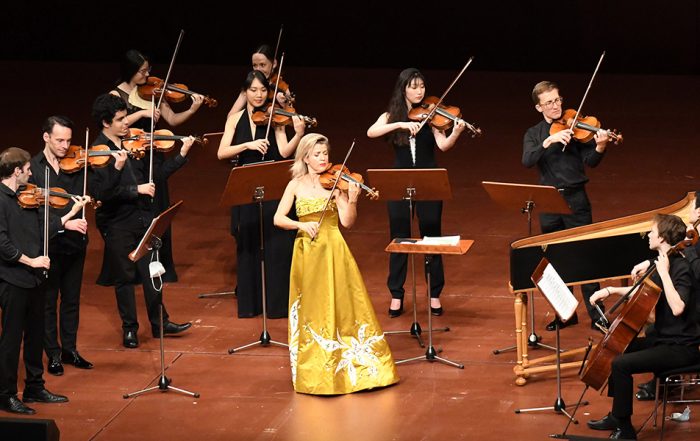
CLASSICAL MUSIC
12 June
ANNE-SOPHIE MUTTER
MUTTER’S VIRTUOSI
Works by Vivaldi, Bach, Previn, Bologne de Saint-George
The Odeon of Herodes Atticus welcomes legendary violinist Anne-Sophie Mutter. Throughout her long-running career, the German virtuoso, who started out under the wing of Herbert von Karajan, has performed at every prestigious concert hall around the world and left her mark on classical music. She has received numerous international accolades for her recordings, including four Grammy Awards.
The major violinist will be joined by a string ensemble consisting of current and former fellows of the Anne-Sophie Mutter Foundation as well as other selected young musicians. Under Mutter’s artistic leadership, Mutter’s Virtuosi have been steadily accompanying their mentor in concerts across the globe since 2011.
At the Odeon concert, the world-class violinist will perform solo in three concertos and also in André Previn’s Nonet, a chamber music work for nine instruments that was dedicated to her and will be presented in Greece for the very first time. Mutter herself will conduct the concert.
Antonio Vivaldi (1678-1741)
Concerto in F major for 3 violins, strings, and continuo, RV 551
Johann Sebastian Bach (1685-1750)
Violin Concerto in A minor, BWV 1041
André Previn (1929–2019)
Nonet Greek premiere
J.S. Bach
Brandenburg Concerto No.3 in G major, BWV 1048
Joseph Bologne, Chevalier de Saint-Georges (1745-1799)
Violin Concerto in C major, Op. 5, No. 2
Violin & Artistic Direction Anne-Sophie Mutter

CLASSICAL MUSIC
15 June
UTOPIA ORCHESTRA – TEODOR CURRENTZIS
Symphony No. 3 by Gustav Mahler
Podium star Teodor Currentzis will perform alongside his new artistic project, Utopia Orchestra, an international ensemble consisting of major world-renowned soloists.
Born in Athens in 1972, the distinguished Greek conductor learned his craft under the legendary Ilya Mushin at the Saint Petersburg State Conservatory from 1994 to 1999. In 2004, he founded musicAeterna Orchestra and Choir in Novosibirsk, with whom he took Europe’s music capitals by storm. In 2018, he was appointed chief conductor of the Stuttgart Radio Symphony Orchestra. In the meantime, he keeps performing at all major festivals, collaborating with the greatest directors and garnering international awards for his recordings. Gifted and unconventional, he occupies a prominent place in classical music thanks to his brilliant performances, which invariably evoke powerful emotions in his audience.
At the Odeon concert, the famous maestro will conduct the Utopia Orchestra in Mahler’s majestic Symphony No. 3. Composed in the summers of 1895 and 1896, the gigantic Symphony No. 3 (six movements with a total running time of over 90 minutes) constitutes Mahler’s sublime celebration of Nature and the elemental forces of beings as they strive to merge with God. For the composer, mutual love is tantamount to the most admirable desire of existence, elevating humankind far above their perishable and painful condition. In the fourth part, “Zarathustra’s roundelay”, performed by the mezzo-soprano, Mahler wonders about the meaning of life and the possibility of joy. In the fifth movement, childish voices narrate an angelic “sweet song, with blessed joy it rang in heaven”. The Adagio, in the conclusion, soothing in its splendour despite its solemn passages, provides a response to the previous agonizing questions and leads the work to its redemptive finale.
Gustav Mahler (1860-1911)
Symphony No. 3 in D minor
*

OPERA GALA
17 June
ROBERTO ALAGNA & ALEKSANDRA KURZAK
CITY OF ATHENS SYMPHONY ORCHESTRA
NAYDEN TODOROV
Maria Callas Year
The year 2023 has been declared Maria Callas Year by UNESCO. On the occasion of the celebration for the 100th birthday of the 20th-century’s greatest soprano, the Maria Callas Greek Society holds a concert featuring internationally acclaimed tenor Roberto Alagna and famous soprano Aleksandra Kurzak. The popular artists will join their voices in arias and duets immortalized by Maria Callas’ rich voice and distinctive timbre, under the baton of conductor Nayden Todorov, director of the Sofia Philharmonic Orchestra. The total proceeds of the concert will go to the creation of the Maria Callas Museum, which will be dedicated to the iconic Greek soprano. The artists are joined by the City of Athens Symphony Orchestra.
The concert is held under the Auspices of the City of Athens and the Hellenic Ministry of Culture and Sports.
*
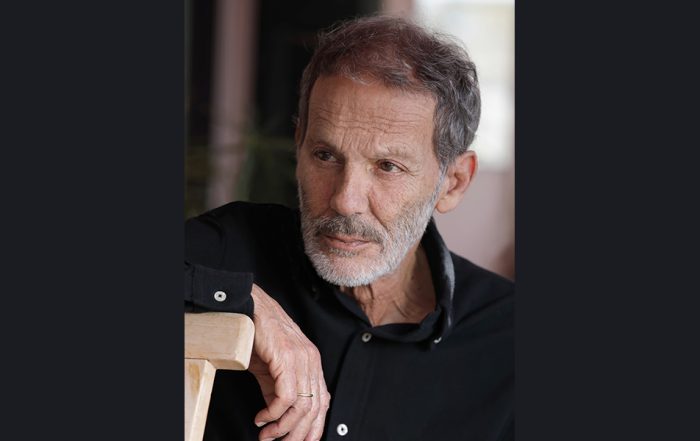
GREEK MUSIC
18 June
STAVROS XARCHAKOS
One of the great masters of Greek music, inextricably linked to the artistic expression of our collective adventure as a nation from the 1960s to this day, Stavros Xarchakos draws on the power of songs, which, as he notes, “show us the way, they are our allies in our struggle for a better life, and also drive our fears away. Love is a revolution; for humans, the eternal Holy Grail is Freedom!”.
Songs such as “Ta Pseftika ta Logia ta Megala” [Fake Big Words] will lead to “Kaisariani”, Iakovos Kambanellis’ “To Megalo mas Tsirko” [Our Great Circus] and Manos Eleftheriou’s “Ithaki” [Ithaca]. We will all come together in “Stis Akropolis ta Meri” [In the Acropolis Neighbourhood], guided by beloved performers: Maria Farantouri, Yiannis Kotsiras and Iro Saia.
Orchestra conductor Stavros Xarchakos • Performers Maria Farantouri, Yiannis Kotsiras, Iro Saia • Narrator Xenofon Rarakos • Co-production Athens Epidaurus Festival, Cricos Productions
*
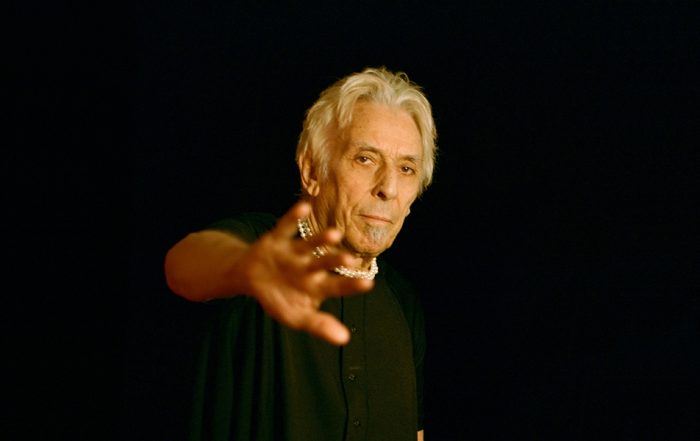
CONTEMPORARY MUSIC
19 June
JOHN CALE & BAND
ATHENS PHILHARMONIA ORCHESTRA
From Velvet Underground to Mercy
Ft. orchestra & immersive visuals
John Cale, the Welsh musician who made history with the Velvet Underground, will perform at the Odeon of Herodes Atticus: a musical journey through a career spanning six decades, with plenty of classic material as well as songs from his newest album Mercy, which has received glowing reviews from the international music press. Composer, singer, songwriter and record producer of rock, drone, classical, avant-garde and electronic music, Cale and Lou Reed, with Andy Warhol as their manager and Nico as a muse of sorts, founded the Velvet Underground, one of the most beloved avant-garde bands of all time. In 1996, Cale was inducted into the Rock & Roll Hall of Fame. He has also been appointed Officer of the Order of the British Empire. A student of Iannis Xenakis and John Cage, close friend and collaborator of Brian Eno, with over 20 solo albums under his belt, Cale is also the producer who discovered iconic figures of rock music, including, but not limited to, Patti Smith, Iggy Pop, Squeeze and Jonathan Richman.
Joining him on the stage are the Athens Philharmonia Orchestra and, of course, his band, presenting a performance specially conceived for the monument, an exclusive world premiere featuring orchestra and immersive visuals.
Production Supernova Productions
*
CLASSICAL MUSIC
GREEK ORCHESTRAS
21 June – WORLD MUSIC DAY
ERT NATIONAL SYMPHONY ORCHESTRA
KATIA & MARIELLE LABÈQUE
CHRISTOS CHOMENIDIS
DIONYSIOS DERVIS-BOURNIAS
DIONYSIOS SOURBIS
Works by Saint-Saëns, Pécou / Savvopoulos, Bizet
Once again this year, the ERT National Symphony Orchestra and the Athens Epidaurus Festival celebrate the World Music Day or Fête de la musique, holding a big concert, with free admission, at the Odeon of Herodes Atticus. In the first part of the evening, the orchestra will perform Camille Saint-Saëns’ delightful Le Carnaval des animaux (1886), which contains references to Mendelssohn, Berlioz and Offenbach, and is based on humorous improvisations whose students encouraged him to write down. The performance of this extremely popular, for grown-ups and kid alike, work is accompanied by a reading from author Christos Chomenidis, shedding light to it through an original text written specifically for this concert. In the second part, the mood shifts completely, as one of the greatest composers of our time, Thierry Pécou, is in dialogue with Dionysis Savvopoulos’ Zeibekiko. Pécou continues the journey of this melody, travelling through different styles and eras, and creating a nightmarish instrumental background with references to Xenakis’ work. In the third and final part, the orchestra ends on a high note, performing two orchestral suites from Bizet’s Carmen. One of the most popular works of the world repertoire, the two suites have been recorded by some of the greatest conductors. French-Greek maestro Dionysios Dervis-Bournias conducts, while Katia and Marielle Labèque, the world-class piano duo for half a century now, perform the piano.
Camille Saint-Saëns (1835-1921)
Le Carnaval des animaux
Thierry Pécou (1965-) / Dionysis Savvopoulos (1944-)
Zeibekiko
Georges Bizet (1838-1875)
Carmen, Suites No. 1 & No. 2
Conductor Dionysios Dervis-Bournias • Soloists Katia and Marielle Labèque piano • Performer Dionysios Sourbis, baritone • Reading by author Christos Chomenidis
*

CONTEMPORARY MUSIC
22 June
THE WATERBOYS
The Waterboys have a special bond with Greek audiences. This year, they are bringing their melodies and lyricism to the Odeon of Herodes Atticus for the first time. The Waterboys were formed in Edinburgh in 1983 by Scottish musician Mike Scott. Their history is inseparable from Scott’s musical career, as he is the heart and soul of the group. Using rock’n’roll as a starting point, their early music is noted for its epic, ambitious compositions (the term big music was coined especially for them). In 1985, “The Whole of the Moon” was released, eventually becoming the signature song of the band and covered by a host of artists, from Prince and U2 to The Killers and Rod Stewart. In addition to big music, Scott, a folklore legend enthusiast, has taken the Waterboys down more folk music paths, inspired by Celtic tradition and Greek mythology, with Pan, in particular, being his favourite mythical figure. From 1983 to this day, the Waterboys have released 15 albums in total and have never stopped evolving.
Production Supernova Productions
*
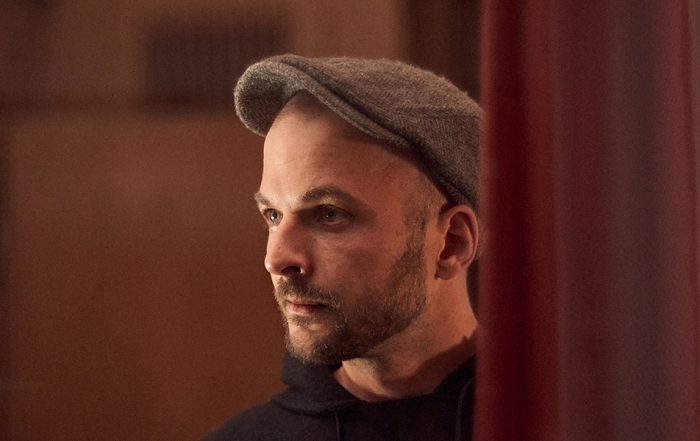
CONTEMPORARY MUSIC
23 June
NILS FRAHM
Music for Athens
When it comes to defining the space between classical and electronic music, hardly any other name is mentioned as often as that of the Berlin-based pianist, composer and producer Nils Frahm. His unconventional approach to the piano, played contemplatively and intimately, and his sonic alchemy of ambient textures and atmospheric electronica, has won him many fans around the world. Numerous tours and concerts all over the globe have strengthened his reputation as both an exceptional instrumentalist and a fascinating live musician. His albums have garnered international acclaim from critics and audiences alike, and his live shows are always sold out. This year, he will perform at the Odeon of Herodes Atticus, offering audiences an unforgettable, enchanting evening.
Production The Hub Events
*
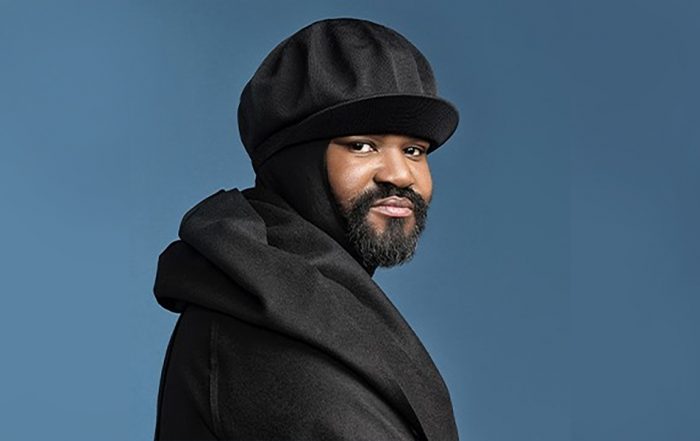
CONTEMPORARY MUSIC – JAZZ SESSIONS
24 June
GREGORY PORTER
Within the last decade, Gregory Porter has brought contemporary jazz to the ears of thousands of people by way of his warm, baritone voice. He quickly rose to fame in 2010 with his first album, Water, a wonderful mixture of jazz, gospel and soul. Soon afterwards, critics declared him to be on the same level with iconic artists such as Nat King Cole and Stevie Wonder. He is the recipient of two Grammy Awards.
One of the most lauded performers of his generation, Porter will make his Greek debut shortly before his three scheduled concerts at London’s Royal Albert Hall.
Production Menta
*

GREEK MUSIC
25 June
ELLI PASPALA
The American Songbook
Special guest Vassilikos
A journey down the American musical tradition through songs of legendary artists such as Cole Porter, George Gershwin and Leonard Bernstein as well as contemporary songwriters who defined an era and shaped the aesthetics of many generations to come, including Joni Mitchell, Leonard Cohen, Paul Simon and Prince.
Songs which remain classic and timeless, plus major moments in the history of American songwriting, are masterfully performed by Elli Paspala. Born and raised in New York, she retains the culture and treasures of American music as an integral part of her performing style.
Paspala is joined by a small orchestra consisting of a wind and a string quartet, alongside a group of musicians comprising some of Greece’s most accomplished soloists, led by David Lynch in saxophone, also in charge of instrumentations, Takis Farazis in piano, Petros Klampanis in double bass and Yannis Angelopoulos in drums.
Vassilikos, a fan-favourite of Greek audiences, will also participate, performing songs in his own, unique way, both jointly with Elli Paspala and solo.
David Lynch tenor & soprano saxophone instrumentations, flute, percussion • Takis Farazis piano, Petros Klampanis double bass, Yannis Angelopoulos drums, Kostas Panagiotidis violin, Katerina Chatzinikolau violin, Angela Giannaki viola, Dimitris Travlos cello, Christina Pantelidou English horn & oboe, Manos Ventouras French horn, Dimitris Dakovanos bassoon, Tommy Lynch tenor & alto saxophone, vocals • Lighting design Stella Kaltsou • FOH sound engineer Yiannis Paxevanis • Stage sound engineer Panagiotis Spyropoulos • Photos – Video Vasia Anagnostopoulou • Executive production PROSPERO
*
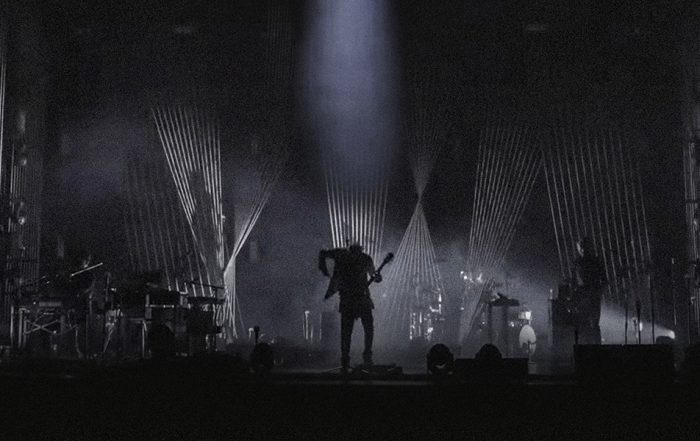
CONTEMPORARY MUSIC
27 June
SIGUR RÓS
One of the most popular post-rock bands on the planet, the Icelandic Sigur Rós are touring with an orchestra, performing at the Odeon of Herodes Atticus and thrilling Festival audiences with their seductive soundscapes. Their lengthy, hypnotic compositions may be sung entirely in Icelandic or lack verses yet they manage to speak out in a universal musical language. Their complete discography, spearheaded by the now classic songs “Starálfur”, “Olsen Olsen” and “Svefn-g-englar”, has been warmly embraced by audiences and critics alike, while also serving as a source of inspiration for a number of post-rock bands worldwide over at least the last two decades.
Production Detox Events
*
CLASSICAL MUSIC
GREEK ORCHESTRAS
29 June
ATHENS STATE ORCHESTRA – LUKAS KARYTINOS
Requiem by Giuseppe Verdi
Giuseppe Verdi’s awe-inspiring Requiem is one of the most popular symphonic/choral works of all time. In addition to its emotionally moving musical power, what also sets it apart is its anthropocentric dimension. Verdi neither attempted to bolster faith nor stir up fear about the Judgement Day or foster hope for eternal rest. Confronted with the tragic fact of death, he wanted his music to celebrate Humans, their awe in the face of the unknown, their stance towards God, oscillating between faith and doubt. Deeply emotional, the music focuses on and expresses the mystery of the fleeting human existence, making Requiem one of the most invaluable works of the world music canon.
This year, the Athens State Orchestra celebrates the 80 years since its founding with this legendary work, under the baton of its chief conductor Lukas Karytinos. Audiences will have the opportunity to enjoy bass Alexandros Stavrakakis, the only Greek opera singer to have won First Prize at the International Tchaikovsky Competition, Finnish soprano Miina-Liisa Värelä, one of the most promising sopranos of dramatic repertoire worldwide, imposing Tunisian mezzo-soprano Rihab Chaieb and famous Grammy-nominated English-American tenor Barry Banks.
Giuseppe Verdi (1813-1901)
Messa da Requiem (in memory of Alessandro Manzoni) for four soloists, mixed choir and orchestra
Conductor Lukas Karytinos • Soloists Miina-Liisa Värelä soprano, Rihab Chaieb mezzo-soprano, Barry Banks tenor, Alexandros Stavrakakis bass • Featuring the ERT Chorus, the City of Athens Choir and the Amadeus Mixed Choir (Chorus master Svilen Simeonov) • An Athens Epidaurus Festival co-production
*

CONTEMPORARY MUSIC
1 July
ALEXANDRE DESPLAT
Featuring the ERT National Symphony Orchestra
With two Academy Awards, three César Awards, three BAFTAs, two Golden Globes, two Grammy Awards and dozens of nominations to his name so far, his work enjoys an impressive official recognition. Alexandre Desplat, one of the most acclaimed contemporary film composers, was born in Paris in 1961 to a French father and a Greek mother. He turned to music from a very young age. From the late 1990s onwards, his name has been linked with soundtracks of hugely successful American and European films (The Grand Budapest Hotel, The Shape of Water, The Queen, The Curious Case of Benjamin Button, Harry Potter and the Deathly Hallows, The King’s Speech, The Imitation Game, to name but a few). The world-renowned composer will conduct the ERT National Symphony Orchestra in a concert highlighting some of his greatest film compositions.
Conductor Alexandre Desplat
Production Music Box Productions
*
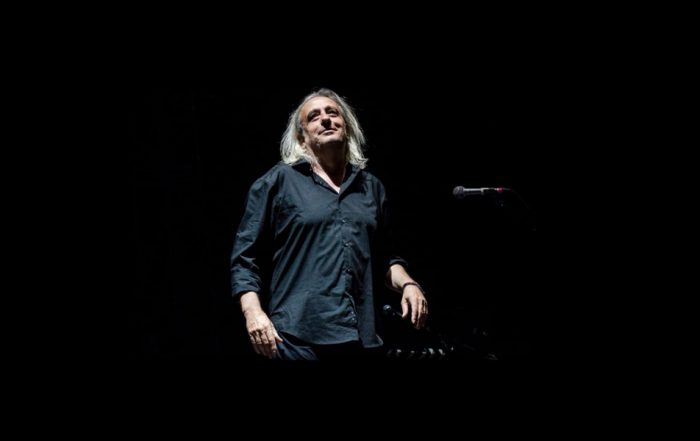
GREEK MUSIC
3 July
GIANNIS AGGELAKAS & THE 100°C
Electric Chair at the Herodion
Always restless and in pursuit of something, Giannis Aggelakas returns to the Odeon of Herodes Atticus three years after his enchanting musical performance Wolves in Wonderland (2020), where he had collaborated with cellist Nikos Veliotis. This year, he will present songs from his entire career as well as some of his own film soundtracks, employing a different approach specially adapted – or maybe not – to the Roman Odeon. Ever since he energized the Greek rock scene back when he was the frontman of Trypes and throughout his entire career, Giannis Aggelakas boasts a devoted fan following that has grown with him and joined in a musical adventure leading to fascinating and unexpected places, at times Dionysian, at times abstract. Poetry, alongside his insatiable curiosity and deep love for music, remain constant.
Giannis Aggelakas and the 100°C will be joined by the Dioni polyphonic vocal ensemble and a string ensemble.
100°C: Lambrini Grigoriadou acoustic guitar, Alexis Archontis drums, George Avramidis trumpet, Ilias Baglanis keyboards, Alexandros Kontzoglou electric guitar, Michalis Karanikos trombone • DIONI polyphonic ensemble: Eirini Koliousi, Panagiota Koliousi, Anthi Kyrkou • Musicians Aggelos Mastrantonis violin, Stelios Papanastasis viola, Wieruszka Kidżeski cello • Sound design Giorgos Tachtsidis, Mimis Konstantinidis • Executive production Wild Rose Productions
*
CONTEMPORARY MUSIC – JAZZ SESSIONS
5 July
ANOUAR BRAHEM QUARTET
The Astounding Eyes of Rita
Following his enchanting performance at the Odeon of Herodes Atticus in 2021, world-class oud virtuoso Anouar Brahem makes his triumphant return at the Athens Epidaurus Festival. One of the most groundbreaking composers of his kind, he combines numerous musical styles, from Arabic musical tradition and the Mediterranean timbre to highbrow Western musical tradition and jazz. His quartet has secured a prominent place in the jazz music scene. As the natural leader of this quartet following ten years of creative collaboration with his musicians, Brahem re-examines this musical universe with a fresh outlook, expanding his horizons.
Musicians Anouar Brahem oud, Klaus Gesing bass clarinet, soprano saxophone Björn Meyer bass, Khaled Yassine darbouka, bendir • Production Athens Epidaurus Festival
*
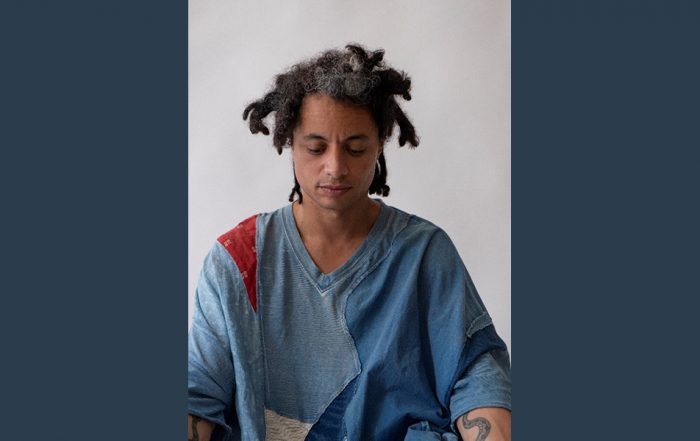
CONTEMPORARY MUSIC – JAZZ SESSIONS
GREEK DEBUT
8 July
JOSÉ JAMES
Since as early as his first album, The Dreamer (2008), José James hasn’t stopped captivating audiences and critics with his unique vocal timbre and the depth of his performance. The so-called “jazz artist of the hip hop generation”, guided by his classical influences (John Coltrane, Marvin Gaye and Billie Holiday), effortlessly moves in between genres, including soul, funk, hip hop and house, always paying tribute to the gospel and blues roots of jazz. This July, he will make his Greek debut, mesmerizing Greek audiences, much like he has already mesmerized music lovers at the greatest stages and festivals across the globe. At his Odeon of Herodes Atticus concert, he will perform songs from three of his albums, dedicated to Billie Holiday, Bill Withers and Erykah Badu.
Production Menta
*
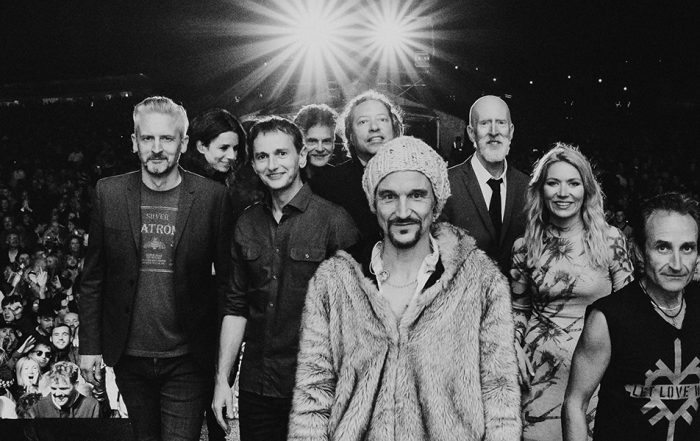
CONTEMPORARY MUSIC
10 July
JAMES
With classical orchestra and a gospel choir
James, an all-time favourite of Greek audiences, are coming to Athens for a magical night at the Herodes Atticus Odeon on the 10th of July with their James Lasted Orchestral Tour – 40th Anniversary. In this once-in-a-lifetime show at the shadow of the Acropolis, James will be joined for the first time in their history by a 22-member symphony orchestra and a gospel choir for a journey down their entire music history.
Having sold more than 25 million albums worldwide, the British indie band from Manchester, have become synonymous with singer Tim Booth’s energized onstage performance and a penchant for anthems like “Senorita”, “Getting Away With it (All Messed Up)”, “She’s a Star”, “Sometimes” that have shaped their unique musical imprint. James’ steadfast relationship with Greece will be once again reaffirmed in a night to remember.
Production High Priority
*
CONTEMPORARY MUSIC – JAZZ SESSIONS
11 July
HERBIE HANCOCK
A world-renowned figure of contemporary music, iconic jazz pianist Herbie Hancock has garnered numerous accolades, including 14 Grammy Awards and an Academy Award, in an impressive career spanning five decades.
Born in Chicago in 1940, Hancock was a child music prodigy, performing at a piano concerto alongside the Chicago Symphony Orchestra at the age of just 11 years old. His collaboration with Donald Byrd in 1960 marked his debut in the jazz music scene. Two years later, he was signed by the famous Blue Note record label. In 1963, he embarked on a five-year collaboration with Miles Davis and together they recorded several classic albums. In 1966, Hancock composed the music for Michelangelo Antonioni’s film Blow-Up, the success of which paved the road for him for a successful career in cinema. In the 1970s, he reached the pinnacle of his fame with his group Head Hunters, while also working with artists such as Chick Corea and Oscar Peterson. He is a UNESCO Goodwill Ambassador and has been honoured for his social contributions.
Production Detox Events
*

CONTEMPORARY MUSIC – JAZZ SESSIONS
12 July
MELODY GARDOT
Renowned jazz singer Melody Gardot will mesmerize Festival audiences with her velvety voice and beautiful blues, folk and Latin performing fusions.
Originally hailing from Philadelphia, USA, the musician first demonstrated her talent in her debut album Worrisome Heart. From a very young age, she established herself as one of the greatest representatives of jazz in her country, delivering spellbinding performances at the world’s greatest festivals. Her distinctive singing style nostalgically evokes the very best moments of the blues tradition, reminiscent of passionate performances by Billie Holiday and Nina Simone.
Production Lavris
*
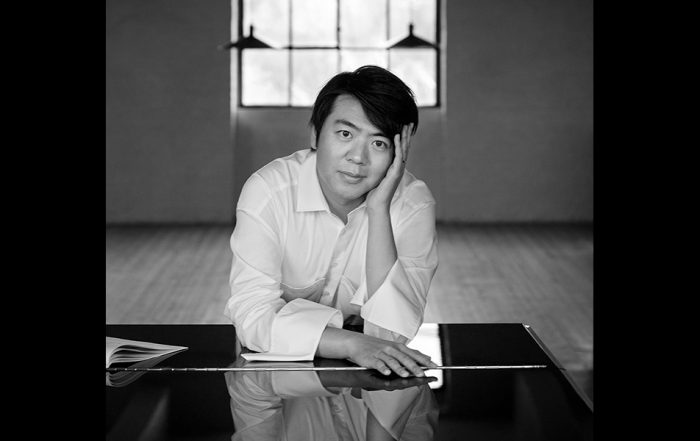
CLASSICAL MUSIC
GREAT ORCHESTRAS
13 July
ORCHESTRE PHILHARMONIQUE DE RADIO FRANCE
JOHN ELIOT GARDINER – ALEXANDRE KANTOROW
Piano Concerto No. 4 by Ludwig van Beethoven
Symphonie fantastique by Hector Berlioz
“There is a musical America, Beethoven was its Colombus”. This is what Berlioz wrote in one of his letters in 1831. He remained adamant in his belief throughout his entire life and never stopped regarding Beethoven as the absolute genius. With that in mind, the encounter of these two composers in the Orchestre Philharmonique de Radio France programme is particular apt, even more so with this specific collaboration on stage. Kantorow, winner of the first prize at the International Tchaikovsky Competition in 2019, has now been established as one of the reference points for 21st-century pianists. Gardiner, on the other hand, is the conductor who has defined how we listen to Beethoven and Berlioz today as few others have. Symphonie fantastique at the Odeon of Herodes Atticus promises to be simply… spellbinding!
Ludwig van Beethoven (1770-1827)
Piano Concerto No. 4 in G Major, Op. 58
Hector Berlioz (1803-1869)
Symphonie fantastique, Op. 14
Conductor John Eliot Gardiner • Soloist Alexandre Kantorow piano
*
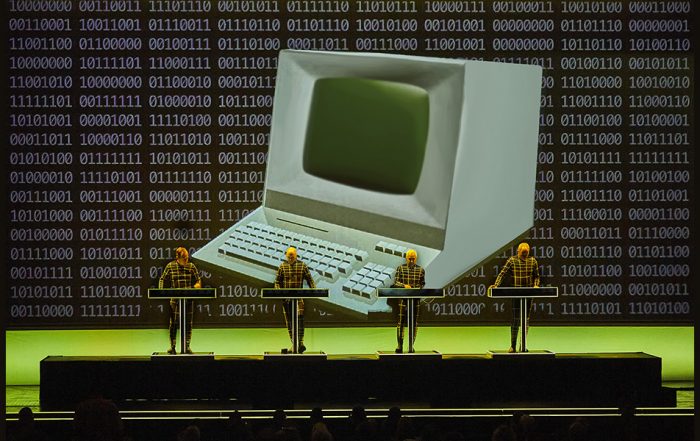
CLASSICAL MUSIC
GREEK ORCHESTRAS
15 July
ATHENS STATE ORCHESTRA – 80 Years
CHRISTOPH ESCHENBACH – LANG LANG
Works by Grieg and Tchaikovsky
Legendary conductor Christoph Eschenbach, one of the most established figures in classical music worldwide, has repeatedly offered iconic performances alongside the world’s leading orchestras. In the last few years, he has been regularly collaborating with the Athens State Orchestra. Chinese pianist Lang Lang, who will perform Grieg’s work, is indisputably a veritable piano superstar, captivating a wide range of music lovers with his passion and electrifying virtuosity. Eschenbach’s contemplative maturity will cross paths with Lang Lang’s youthful fire, offering a historically important performance for the Greek music scene that will surely be etched in memory, on the occasion of the 80th anniversary of the Athens State Orchestra.
Edvard Grieg (1843-1907)
Piano Concerto in A minor, Op. 16
Pyotr I. Tchaikovsky (1840-1893)
Symphony No. 4 in F minor, Op. 36
Conductor Christoph Eschenbach • Soloist Lang Lang piano
An Athens Epidaurus Festival co-production
*
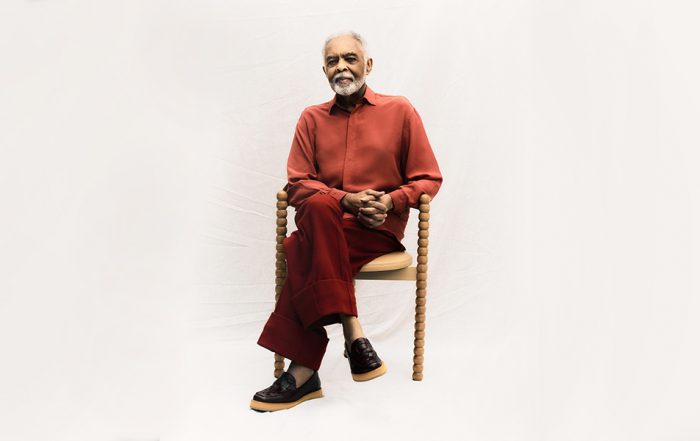
CONTEMPORARY MUSIC
17 July
GILBERTO GIL & FAMILY
Aquele Abraço Tour
Gilberto Gil needs no introductions. His voice and songs have been strongly identified with the Brazilian soul and continue to captivate us. As a musician, he was at the forefront of the Tropicália artistic movement, which defined the new Brazilian sound, creatively melding musical tradition, bossa nova, rock’n’roll and reggae as well as bringing Brazilian music back in touch with its African roots. As a politician, he tirelessly defended democracy and championed musical diversity.
As part of the Aquele Abraço Tour, celebrating his 60-year-old career, Gil returns to the Odeon of Herodes Atticus for a farewell concert that is expected to move us deeply.
The artist is joined on stage by a group of musicians from his extended family, performing songs from Gil’s outstanding musical oeuvre.
Musicians Gilberto Gil artist, vocals, guitar, Bem Gil vocals, guitar, bass, Nara Gil vocals, Flor Gil vocals, Mariá Pinkusfeld vocals, Jose Gil vocals, drums, João Gil vocals, guitar, bass, Francisco Gil vocals, guitar, Leonardo Reis percussion, Danilo Andrade keyboards, Diogo Gomes trumpet, Thiago Queiroz saxophone
*
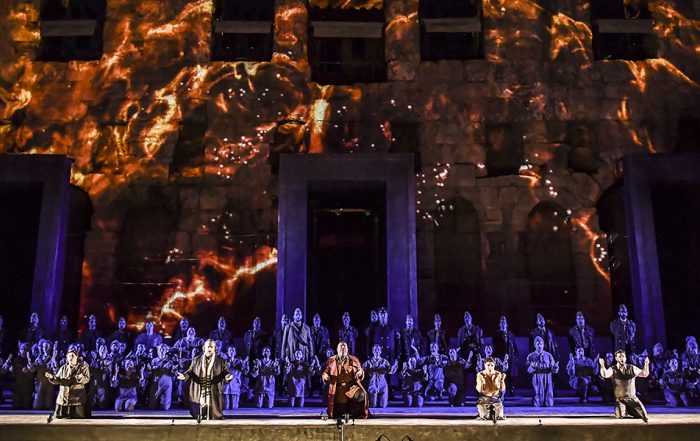
OPERA – REVIVAL
26, 27, 29, 30 July
GREEK NATIONAL OPERA
PAOLO CARIGNANI – LEO MUSCATO
Nabucco by Giuseppe Verdi
The successful 2018 production of Nabucco will be revived at the Odeon of Herodes Atticus in July 2023 and run for four performances, conducted by Paolo Carignani and directed by Leo Muscato. Nabucco established Giuseppe Verdi as the greatest Italian composer of the 19th century, at the same time becoming a symbol of the struggle for the unification of Italy. Although Verdi wasn’t the first composer setting texts with strongly political character to music, Italy’s foremost composer made quite a difference with his musical brilliance. It is this brilliance that invests his operas with an acutely political dimension and has the power to rouse the crowd.
Leo Muscato is one of the most dynamic, up-and-coming Italian opera directors. He has been distinguished for his work on Verdi and Puccini and staged highly successful productions at prestigious opera houses in Italy. One of the world’s leading maestros, Italian Paolo Carignani will conduct this production, marking his first collaboration with the GNO.
Conductor Paolo Carignani • Directed by Leo Muscato • Set design Tiziano Santi • Costume design Silvia Aymonino • Lighting design Alessandro Veraci • Chorus master Agathangelos Georgakatos • Cast Nabucco Dimitri Platanias (26/7 and 29/7), Tassis Christoyannis (27/7 and 30/7), Ismaele Yannis Christopoulos (26/7 and 29/7), Konstantinos Klironomos (27/7 and 30/7), Zaccaria Vitalij Kowaljow (26/7 and 29/7), Petros Magoulas (27/7 and 30/7), Abigaille Ekaterina Semenchuk (26/7 and 29/7), Maria Jose Siri (27/7 and 30/7), Fenena Elena Maximova (26/7 and 29/7), Marisia Papalexiou (27/7 and 30/7)
With the GNO Orchestra, Chorus and Soloists
*
PEIRAIOS 260 – THEATRE
Starting time for all performances 21:00, unless otherwise noted
Greek and English surtitles in all international theatre productions
English surtitles in all Greek theatre productions
and Greek surtitles on opening night for persons with hearing impairment
grape
Intent on systematizing the promotion and export of Greek artistic works, we have created and are launching this year a new platform for the outreach of Greek artists, an Agora for Greek Performing Arts, the GREEK AGORA OF PERFORMANCE, also known by the acronym grape. We drew inspiration for this name from Dionysus, God of Grape-Harvesting and Theatre, by the intoxication caused by Art, by the Greek summer and grapes, a fruit that is passed around – sometimes as an edible fruit, sometimes as wine – and has been linked with our passionate discussions after the end of Festival productions.
PARODOS – PROLOGOS / EXODOS
Focusing on the organic relationship between contemporary performing arts and Ancient Drama, the special initiatives that have been setting the Festival’s tone since 2020 will continue this year: “Parodos”, a studio residence at the Little Theatre of Ancient Epidaurus”; “Prologos”, an introduction to the artistic “language” of each performance, held in collaboration with the Master’s programme of the Department of Theatre Studies, National and Kapodistrian University of Athens; and “Exodos”, post-show talks with artists.
“THE FREEDOM OF OTHERS”
Series of discussions curated by Dionysis Kapsalis
On the occasion of the 200th anniversary since Dionysios Solomos wrote “Hymn to Liberty”, this year’s Festival contemplates and invites reflection on the invaluable notion of freedom. Under the general title, “The Freedom of Others”, this series of discussions, complementary to the artistic programme, will host notable speakers of the letters, arts and the world of intellect. The discussions will be held in four dates throughout the artistic programme.
Α. FREEDOM. VIRTUE AND DARING
Saturday, 10 June, Hall Β, 7.00-8.30 PM
Β. THE GREECE OF OTHERS
Wednesday, 14 June, Hall Β, 7.00-8.30 PM
- THE OTHER EUROPE
Thursday, 22 June, Hall Ε, 7.00-8.30 PM
- STORIES OF OTHERS
Tuesday, 11 July, Hall Β, 7.00-8.30 PM
*
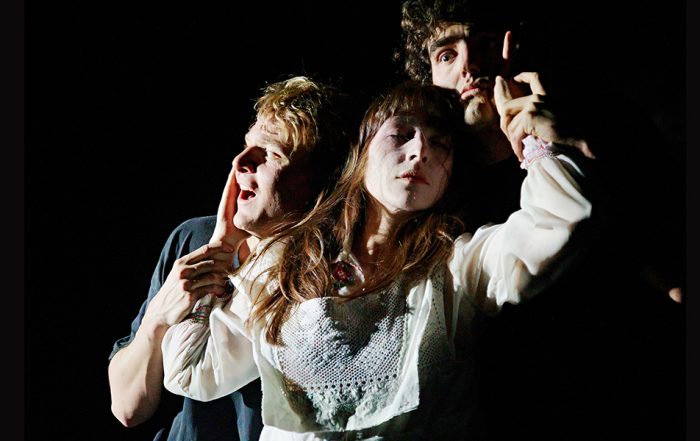
PEIRAIOS 260 D – THEATRE – GREEK DEBUT – GERMANY
7 & 8 June
THALIA THEATER HAMBURG – KIRILL SEREBRENNIKOV
Der Wij (The Viy)
by Kirill Serebrennikov and Bohdan Pankrukhin
Inspired by a Nikolai Gogol story
The Peiraios 260 programme kicks off with a new performance by avant-garde Russian theatre and film director Kirill Serebrennikov, marking his Greek debut, a major event in terms of both its artistic and anti-war symbolic implications. Serebrennikov, former Artistic Director (2012-2021) of the famed Gogol Center in Moscow, was the only Russian director invited to a European festival (Cannes) in 2022, despite the boycott of Russian artists. He is also well-known for his LGBTQI+ activism and his conflict with the Russian regime that led to the Gogol Center shutdown in 2021. Charged with the embezzlement of public money, he was placed under house arrest and was ultimately sentenced to probation in 2020. However, in 2022, his sentence was cancelled. Nowadays, residing in Germany in self-exile, he continues to vocally oppose the Russian invasion of Ukraine. Der Wij, a performance featuring Russian, Ukrainian and German actors, each performing in their own language, encapsulates his opposition and indignation.
In a fantasy/horror novella he authored in 1835, Nikolai Gogol, the father of Russian realism, himself of Ukrainian heritage, invented a terrifying creature called Viy (“Wij” in German), taking inspiration from a Slavic folk legend. The creature was almost blind, its eyelids so long as to touch the ground; however, whenever it managed to open its eyes, it was capable of killing whomever it stared at by a single gaze. Using the Viy legend as a springboard, Serebrennikov conjures a performance of both intolerable cruelty and poetic power. Together with a young Ukrainian writer, Bohdan Pankrukhin, they began penning the stage adaptation in 2022. The duo, as he mentions in his directorial note, “read hundreds of reports and watched documentaries and videos about the war. Bucha, Mariupol, Irpin… Hell on earth. Innocent victims. Monstrous crimes. Documented evidence of barbaric acts. In this production, the Viy is war – a soulless monster with closed eyes that steals people’s identity and futures […] People kill each other and themselves”.
Spectators will come to realize the cynicism of war regardless of sides; they will bear witness to a kind of hell speaking out against the total abjection of human life by means of a brutal language. The play had its premiere in Hamburg in December 2022.
Directing – Set and costume design Kirill Serebrennikov • Set design collaboration Elena Bulochnikova • Costume design Shalva Nikvashvili • Music Daniel Freitag • Choreography Ivan Estegneev, Evgeny Kulagin • Lighting design Sergei Kuchar • Artistic collaboration Anna Shalashova • Dramaturgy Matthias Günther • Translated by Kyra Heye • Casr Filipp Avdeev, Bernd Grawert, Johannes Hegemann, Pascal Houdus, Viktoria Miroshnichenko, Falk Rockstroh, Rosa Thormeyer, Oleksandr Yatsenko • Supported by Körber Stiftung, ZEIT-Stiftung, Rudolf Augstein Stiftung, Mara & Holger Cassens Stiftung, ART Connects
7 June Post-show talk
*
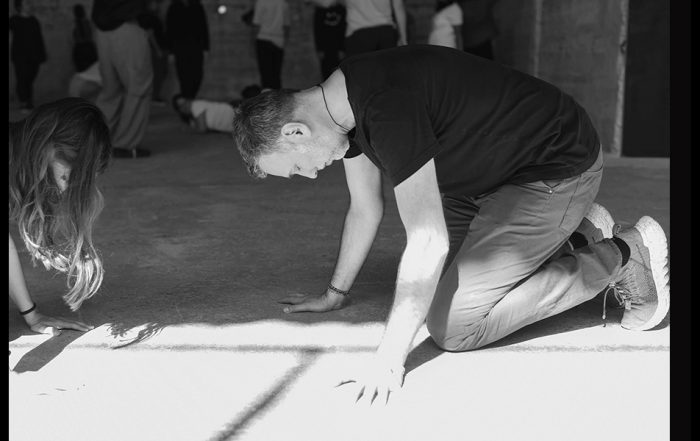
PEIRAIOS 260 Β – DANCE
7 – 9 June
EN DYNAMEI ENSEMBLE – MICHAEL KLIËN
The Utopians
Is it possible to defy the narrow constraints of our personal identity, discover and develop new fields of relationships among humans, achieve co-existence on equal terms? The Thessaloniki-based En Dynamei Ensemble, who captivated the Festival audience with the performance Horse in Love (2019), directed by Eleni Efthymiou under the artistic direction of Eleni Dimopoulou, returns to Peiraios 260 in collaboration with internationally acclaimed Viennese choreographer Michael Kliën. They are jointly presenting a social choreography piece, a choreographic landscape that is something of an experience. The social choreography, in which Klien has been specialized for several years now, is an emerging interdisciplinary field investigating the experience of socialization and highlighting possible realities capable of suggesting new ways of co-existence by means of artistic creation.
The choreographic concept is inspired by Robert Musil’s play Die Schwärmer (The Dreamers), tackling the possibility of logic and dream going hand in hand. In an empty industrial space, an environment consisting of an electroacoustic soundscape and pertinent lighting, a group of approximately fifty people with seemingly mixed abilities move around, personally marking their own trajectories. A deeply complex, collective logic generates a special condition, with the roughly two hundred spectators becoming part of the piece, aided by a group of “guides”. In this manner, from spectator, each participant becomes an active agent.
Choreography Michael Kliën • Concept Michael Kliën – Steve Valk • Artistic Director of the En Dynamei Ensemble Eleni Efthymiou • Artistic collaboration Vitoria Kotsalou • Dramaturgy Steve Valk • Soundscape Volkmar Klien • Lighting design Richard Anthony Lucas • Cast En Dynamei Ensemble and friends: Zacharias Ananiadis, Richard Anthony, Klio Antonopoulou, Haris Bairaktaridis, Giorgos Zisis Bilionis, Lydia Bourtsala, Alexandros Chatsios, Vera Daliani, Maria Dachlythra, Barbara Dickinson, Michalis Dolopoulos, Stavroula Dolopoulou, Brooks Emanuel, Giorgos Gavalas, Chrysa Ioannidou, Margarita Kainada, Petri Karadimitriou, Fiona Katoikou, Angelos Konstantinou, Theano Konta, Vangelis Kosmidis, Efterpi Kosta, Elpida Kouitzoglou, Agapi Theodoridou Kounini, Nikos Kyparissis, Nikoleta Lappa, Stefanos Lentzis, Loxandra Lucas, Christina Lyra Aslanidi, Dimitris Lyras, Panagiotis Matziris, Thanos Nanasis, Marika Niko, Theano Papavassiliou, Georgia Pontsouktsi, Giorgos Poulos, Leo Rya, Charis Serdari, Nicole Schwartz • Co-production Athens Epidaurus Festival, En Dynamei Ensemble • Supported by the Austrian Embassy
*
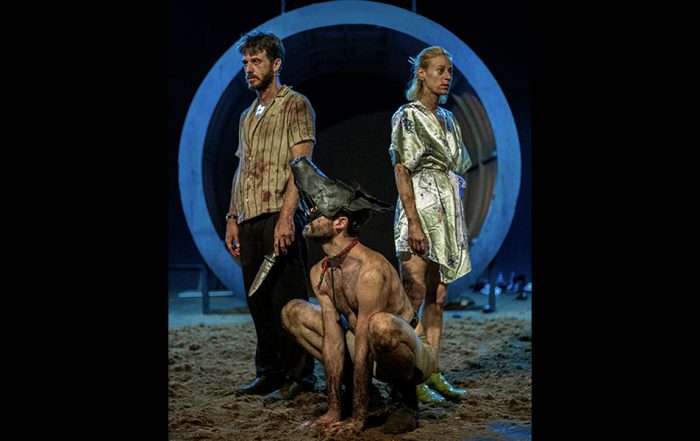
PEIRAIOS 260 Η – THEATRE / REPETITION
7 – 10 June
GIORGOS KOUTLIS
The Dog, the Night and the Knife
by Marius von Mayenburg
One of the most successful performances of last year’s programme, The Dog, the Night and the Knife is once again presented at Peiraios 260. A gory, comical nightmare; a paranoid and brutally funny parable of our absurd reality. Giorgos Koutlis, head of the Experimental Stage of the National Theatre of Greece and restless director, returns with this contemporary play by Marius von Mayenburg, the provocative Schaubühne dramatist. “M” finds himself in an abandoned cul-de-sac. He has no idea how he got there. The only thing he remembers is eating mussels. Night falls. By dawn, “M” will have been stabbed, stabbed others, come across people who wish to devour him, experienced time standing still. It is only at the finale that he finally stops being afraid for the very first time.
Directed by Giorgos Koutlis • Translated by Giorgos Depastas • Set and costume design Eva Goulakou • Lighting design Tassos Palaioroutas • Original music – Sound design Jeph Vanger • Movement Alexandros Vardaxoglou • Assistant to the director Eleni Koutsioumpa • Assistant to the set and costume designer Artemis Sgourou Drosopoulou • Sound engineer Sotiris Ziliaskopoulos • Props – Effects Panos Kondylis – ΑRK FX • Set construction Vassilis Charalambopoulos • Painted sets Nikos Karras • Seamstress Victoria Charalambidou • Photos Christos Symeonidis • Assistant executive production Nikos Charalambidis • Cast (in alphabetical order) Thanos Lekkas, Vasilis Magouliotis, Dimitra Vlagopoulou • Executive production POLYPLANITY Productions / Yolanda Markopoulou, Vicky Strataki • Play rights by Henschel SCHAUSPIEL Theaterverlag Berlin GmbH. Exclusively represented in Greece and Cyprus by Thanassis Sarantos (Ithikon Akmeotaton theatre company).
*
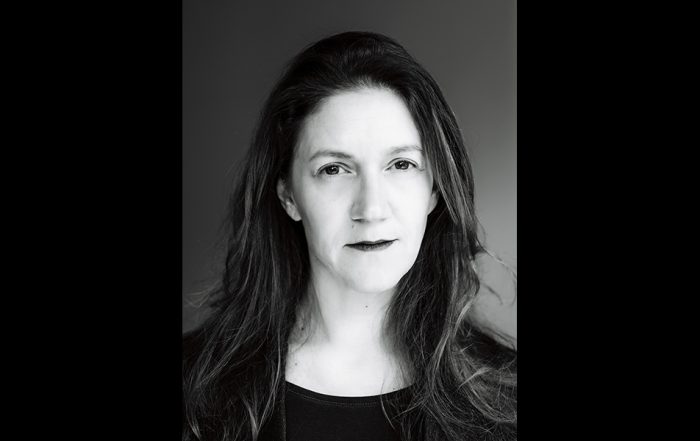
PEIRAIOS 260 Ε – THEATRE
7 – 10 June
NATASHA TRIANTAFYLLI
Marshall Plan – Α Path of Perspectives
The idea of a new beginning amid the ruins of destruction becomes synonymous to expectations for a better life, complete with the insecurity and difficulty which are usually part and parcel of everything new. The Marshall Plan, the rebuilding and recovery initiative aimed at European countries, including Greece, defined US foreign policy after the end of World War II. Was this kind of restarting feasible after all? What is it that emerges from a hopeless osmosis of dissimilar groups and persons? How unexpected can the end result be under such circumstances?
In his famous report for Greece published in 1947, Paul Porter, US delegate in Greece, writes that the country was “in the grip of a gray, unrelieved, profound lack of faith in the future”. The transformation, as conceived in the context of the Marshall Plan, took four years to be completed and left behind – apart from infrastructure, agricultural and industrial projects – a taste of modernization as well as a mistrust of foreign aid and its true motives.
Using the delegate’s journal as a springboard, along with the still terribly relevant report he drew up, the performance brings to the forefront that specific era, drawing on Porter’s meetings with Greek workers and farmers, officials, people starving in cities, children and dozens of other real-life individuals. Gradually, the dramaturgy is enriched with scientific studies, historical and economic documents, combined with numerous testimonies, all of which convey the grotesque co-existence of the American ideal and the anarchic Greek spirit, by turns life-saving, dramatic and comical.
In its own way, the visual environment tells the story of how catastrophe turns into creation, how dissolution turns into organization, using music as an integral aspect. The fusion of 1940s rock’n’roll and jazz music with Greek dimotiki (traditional) music encapsulates the tension and admiration as well as the awkwardness and contradictions palpable in the confrontation of these two cultures. Text, visual space, light and music converse with historical phases of post-WWII Greece before, during and after the implementation of the Marshall Plan, investigating its prospects, successes and failures, which continue to affect us today.
Concept – Directing – Lighting Natasha Triantafylli • Performance text assembled by Dimitra Mitropoulou, Natasha Triantafylli • Dramaturgical collaboration Elena Triantafyllopoulou • Costume design Eva Manidaki • Costume design Vana Giannoula • Music Μonika • Lighting collaboration Dimitris Koutas • First assistant to the director – Movement Dimitria Mitropoulou • Second assistant to the director Maria Papadouli • Assistant to the set designer Maria Kalofouti • Production manager Manolis Sardis – Pro4 • Cast (in alphabetical order) Daphne Alexander, Aris Balis, Nicolas Maraziotis, Dimitra Mitropoulou • Also featuring young Konstantinos Sardis • Video appearance by Christos Loulis
Warmest thanks go to Stathis N. Kalybas for his assistance and cooperation in developing the themes and texts of the performance, to Konstantina Botsiou, Christos Tsakas and Tasos Sakellaropoulos for their contribution in collecting scientific material and information as well as Giorgos Stathakis, Michalis Psalidopoulos, Eleni Beneki and the Piraeus Bank Group Cultural Foundation and Maria Sabatakaki for their help.
9 June Post-show talk
*
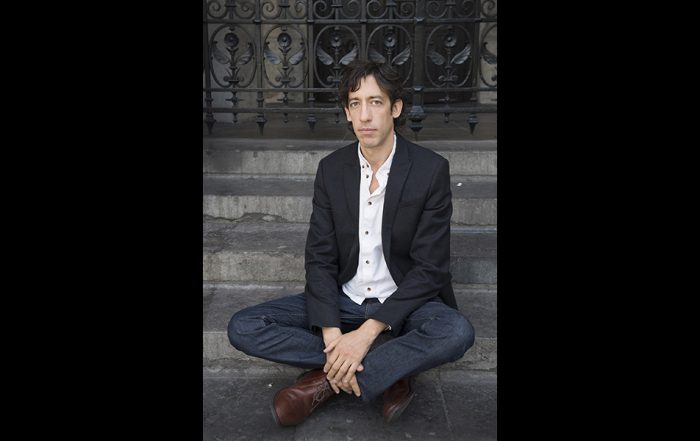
PEIRAIOS 260 Η – THEATRE – INTERNATIONAL CO-PRODUCTION
ARGENTINA
14 & 15 June
MARIANO PENSOTTI – GRUPO MAREA
La obra (The Play)
The performance La obra draws on the “true story” of Simon Frank, a Polish-Jewish man and last survivor of the Holocaust in his family who moves to an Argentinean village in the 1960s. He starts building a huge theatrical scenery, re-enacting scenes from the town where he grew up as well as the concentration camp where his family was murdered. His monologue, covering his entire life since his childhood, is gradually interspersed with the reconstruction of true places and events, featuring countless local villagers as extras. The village eventually becomes famous thanks to this attraction. Nevertheless, many years later it is revealed that the Polish-Jewish man was not exactly the man he claimed to be.
In his productions, internationally acclaimed, avant-garde Argentinean director Mariano Pensotti focuses on the relationship between documentary and fiction, fantasy and reality, frequently drawing on his own life or that of his collaborators. In La obra, he invokes another theatre director as his alter ego: Walid Mansour. According to the plot, Mansour comes to Argentina precisely in order to stage a performance drawing on the narratives of the villagers who participated in Simon Frank’s play, exposing how this experience affected their lives. This kaleidoscopic perspective makes us question our certainties, both on the meaning of “perpetrator” and “victim” today and on the very meaning of re-enactment.
Written and directed by Mariano Pensotti • Set design Mariana Tirantte • Music – Sound Diego Vainer • Artistic production Florencia Wasser • Video Martin Borini • Lighting design David Seldes • Stage manager – Assistant to the director Juan Francisco Reato • Dramaturgy Aljoscha Begrich • Cast Susana Pampin, Diego Velazquez, Pablo Seijo, Rami Fadel Khalaf, Horacio Acosta, Alejandra Flechner • Musician TBA • Co-production Wiener Festwochen, Athens Epidaurus Festival, Printemps des Comediéns Montpellier, Festival d’Automne à Paris
14 June Post-show talk
*
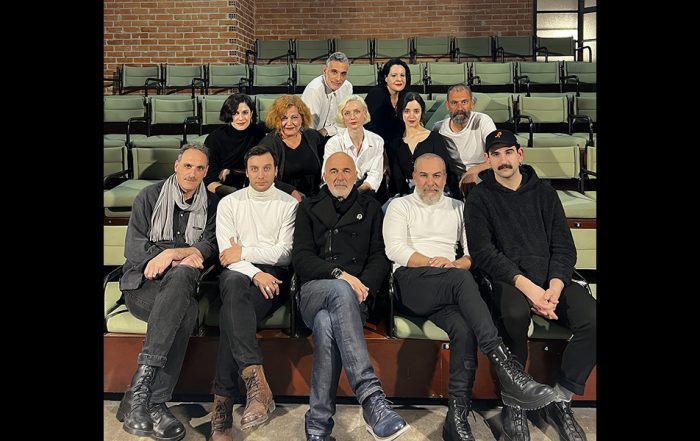
PEIRAIOS 260 D – THEATRE
14 – 18 June
STATHIS LIVATHINOS
Casanova / Don Juan
The Romantic Wandering
A performance built upon a poetic parallel between Lord Byron and Marina Tsvetaeva, both of whom were inspired, a century apart: the former by the mythical figure of Don Juan and the latter by the historical figure of Casanova. Byron began writing Don Juan in 1818 while in self-exile in Italy. After approaching this mythical Don Juan in a brand-new manner, he abandoned the work unfinished in 1823, as he started to become increasingly involved in the Carbonari revolutionary society and later the Greek War of Independence. About a hundred years later, in the tempestuous post-October Revolution years, Tsvetaeva wrote The End of Casanova in Moscow, last part of her play Phoenix, shortly before she departed for Berlin in self-exile.
In director Stathis Livathinos’ new production, the voices of the two great poets meet, illuminating various questions, from romantic wanderings and a constant sense of looking back to the time that passes by and fades away to the issue of exile, the other face of this wandering. Both texts were composed in turbulent times; the sense that something is coming to an end is inscribed in their core.
For this production, Livathinos collaborates with his regular team of actors, theatre researcher and translator Elsa Andrianou for the translation of Tsvetaeva’s The End of Casanova, and poet and translator Giorgos Koropoulis, translator of Byron’s Don Juan. Both of these unique classics are presented in Greek for the first time, in rhyming verse, promising us a highly creative stage work.
Translated by Elsa Andrianou (The End of Casanova by Marina Tsvetaeva), Giorgos Koropoulis (Don Juan by Lord George Gordon Byron) • Directing – Dramaturgy Stathis Livathinos • Set and costume design Eleni Manolopoulou • Music Thodoris Abazis • Lighting design Alekos Anastasiou • Sound engineer Kostis Pavlopoulos • Assistant to the director Erato Pissi • Assistant to the set design Emily Koukoutsaki • Production technical coordination Nikos Charalambidis • Cast (in alphabetical order) Vasilis Andreou, George Dampasis, Dimitris Filippidis Nikos Kardonis, Stathis Koikas, Eirini Lafazani, Lilly Meleme, Polyxeni Papakonstantinou, Maria Savvidou, Theovi Styllou, Aris Troupakis • Executive production Polyplanity Productions / Yolanda Markopoulou, Vicky Strataki
15 June Post-show talk
*
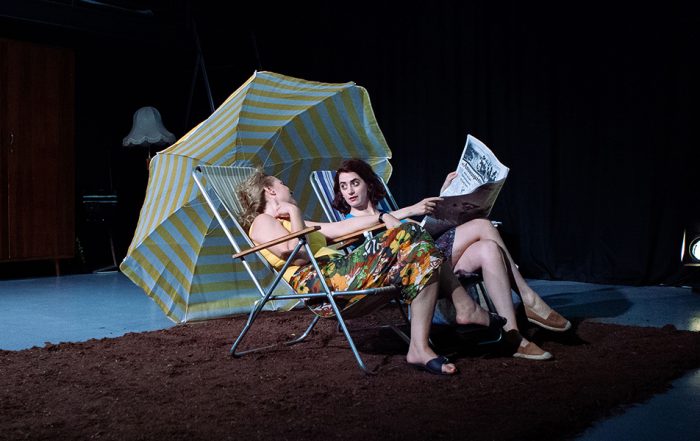
PEIRAIOS 260 Ε – THEATRE – CYPRUS
15 & 16 June
SEASON WOMEN PROJECT
Women Walk Home
In 1975, one year after the Turkish invasion of Cyprus, 30,000 women silently walk towards the occupied city of Famagusta (“Ammochostos” in Greek). In 1987 and 1989, thousands of women cross the “green line” and come face to face with the occupation army. In 1988, one hundred women from Cyprus occupy the Acropolis in Athens as an act of protest. Do all these remind us of something? Does the “Women Walk Home” movement ring a bell?
A performance about a story of heroics, vision, hope, cooperation for an epic achievement that has faded from our collective memory, diminished and forgotten. During the 1970s and 1980s, employing remarkable strategies, the “Women Walk Home” movement organized peaceful anti-occupation marches in Cyprus, aiming to break through the opposition line and turn the Cyprus problem into a matter of international interest.
Based on authentic testimonies, presented here verbatim, this production asks us to examine the official history with a critical eye, focusing on timeless issues: the erasure of female experience from official history and the absence of a female perspective from public life.
The plot deals with the true price of this struggle on both a personal and a collective level; the tension between hope and despair, between a vision for peace and a story of violence and trauma.
The dramaturgy largely follows the historical events yet with a major twist deriving from the nature of verbatim theatre: it is in constant dialogue with the present and today’s audience.
Directed by Magdalena Zira • Text Magdalena Zira, Nedi Antoniadi • Dramaturgy consultant Athina Kasiou • Set and costume design Elena Katsouri • Video design Elena Alonefti • Musical composition – Music design Antonis Antoniou • Lighting design Vasilis Petinaris • Poster Giorgos Tsagaris • Production assistant Nicola Mitropoulou • Photos Sokratis Sokratous • Technical support Achilleas Mouskis • Production SEASON Women Project • Scientific associate Dr Petros Papapolyviou, Department of History and Archaeology, University of Cyprus • Cast (in alphabetical order) Nedi Antoniadi, Niki Dragoumi, Sofia Kalli, Giola Kleitou, Zoi Kyprianou, Ioanna Papamichalopoulou
*
PEIRAIOS 260 PLATEA – DANCE
17 & 18 June
AEF Urban Dance Contest
Hip Hop Battle
All Styles Battle
For the third year running, the Greek hip hop and street dance scene is strongly represented in the Festival in the form of the Layers of Street thematic section. Following its two successful instalments in the last couple of years, the Athens Epidaurus Festival Urban Dance Contest, which introduced the Peiraios 260 audience to the world of hip hop and street dance, is back this year with new, electrifying dance battles spread across two evenings, once again curated by dancer and choreographer Ilias Chatzigeorgiou.
Some of the best dancers, established and up-and-coming alike, will compete in two categories (1vs1 Hip Hop Battle and 2vs2 All Styles Battle), claiming the winning title of the 3rd Athens Epidaurus Festival Urban Dance Contest and significant money prizes.
The judges, distinguished dancers from Greece and abroad, will be asked to decide this year’s winners. Audiences will also have the opportunity to enjoy them dancing in the Judges Showcases section.
Host Sifu Versus, with his charismatic presence and familiar voice, will keep us company on both nights, while wonderful dance music will be blasting from DJ AmazeMe’s decks. After the end of the battles, the latter will invite dancers and audiences to a dance celebration with no boundaries.
*
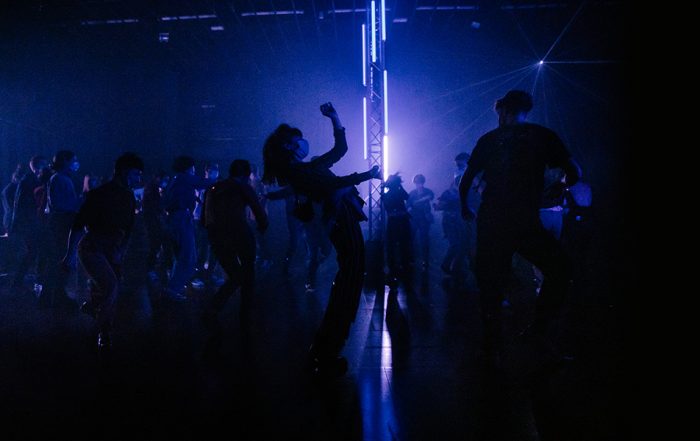
PEIRAIOS 260 Β – DANCE –BELGIUM
17 & 18 June
METTE INGVARTSEN
The Dancing Public
Is it possible for dance to transform the collective body of the audience? Is it possible for dance to demolish the social isolation and physical immobility imposed by the pandemic? Danish dancer and choreographer Mette Ingvartsen, whom we first met at the Athens Epidaurus Festival 2017 with 69 Positions, returns with a rousing solo that will once again electrify audiences. Drawing inspiration from historical phenomena of “dancing mania”, she allows an intense rhythm to sweep her along on a highly charged, infectious dance replete with the dynamic lyrics pervading the story of these narratives. Taking audiences along for the ride, she moves among them, dances with them and involves them in an all-encompassing experience, halfway between a party and a concert. A collective artistic experience reaffirming the promise of her phrase: “Tonight is for dancing, tonight we’ll be dancing”. Above all, a fascinating dance performance.
Concept – Performance Mette Ingvartsen • Lighting design Minna Tiikkainen • Set design Mette Ingvartsen & Minna Tiikkainen • Musical arrangements Mette Ingvartsen, Anne van de Star • Costume design Jennifer Defays • Dramaturgy Bojana Cvejić • Technical direction Hans Meijer • Sound technician Anne van de Star • Company management Ruth Collier • Production – Administration Joey Ng • Music Affkt feat. Sutja Gutierrez, Scanner, Radio Boy, LCC, VII Circle, Kangding Ray, Paula Temple, Ron Morelli, Valanx, Anne van de Star • A production of Great Investment vzw • Supported by the Fondation d’entreprise Hermès within the framework of the New Settings Program, Bikubenfonden • Co-production PACT Zollverein (Essen), Kaaitheater (Brussels), Festival d’Automne (Paris), Tanzquartier (Vienna), SPRING Performing Arts Festival (Utrecht), Kunstencentrum Vooruit (Ghent), Les Hivernalles (Avignon), Charleroi danse centre chorégraphique de Wallonie – Bruxelles, NEXT festival, Dansens Hus Oslo Residency Kunstencentrum Buda (Kortrijk) • Funded by The Flemish Authorities, The Danish Arts Council & The Flemish Community Commission (VGC)
*
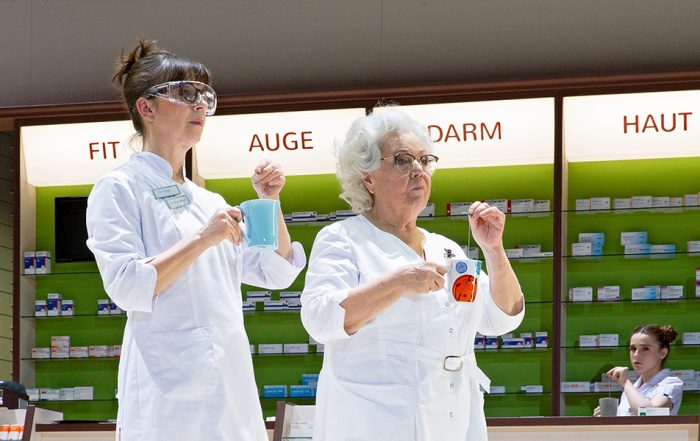
PEIRAIOS 260 Η – THEATRE – SWITZERLAND
19 & 20 June
CHRISTOPH MARTHALER
Das Weinen (Das Wähnen) [Whining (Waning)] by Dieter Roth
Avant-garde, provocative Swiss director Christoph Marthaler, a familiar face to the Festival audiences, returns to Peiraios 260, with a performance based on texts of his compatriot Dieter Roth. A multifaceted visual artist, renowned for the unorthodox approach to his materials, Roth (1930-1998) also left behind an extensive body of work as a writer and poet, which remains largely unknown. The text of the performance, Das Weinen (Das Wähnen), is a collection of verbal acrobatics with stage directions, taken from the edition Das Weinen (Das Wähnen) Volume 2Α (Sea of Tears 4). Figuratively walking on Roth’s tightrope, Marthaler reflects on the transience of things against the backdrop of an antiseptic pharmacy. All the ingredients found in Marthaler’s theatre are once again present: music, irony, expansion of stage time. In Roth, Marthaler finds a kindred spirit due to the latter’s penchant for the absurd, the decay of time and imperfection.
Five women, all pharmacy employees, contemplate the ephemerality of things. The only client (and sole male character in the performance) delivers a monologue about his difficulty swallowing and how it ails him; however, the women hardly pay him any attention. The cure proposed by Marthaler lies, not in medicine, but in Roth’s Neo-Dada texts, which actors recite in the same impressively precise manner in which they chant Mozart’s Lacrimosa. When one of the employees reads the long list of a medicine’s side-effects, we realize that the entire human life is a but a deluge of side-effects from which it seems impossible to rid ourselves.
Directed by Christoph Marthaler • Set design Duri Bischoff • Costume design Sara Kittelmann • Sound design Thomas Schneider • Musical direction – Recordings Bendix Dethleffsen • Lighting design Christoph Kunz • Dramaturgy Malte Ubenauf • Cast Liliana Benini, Magne Håvard Brekke, Olivia Grigolli, Elisa Plüss, Nikola Weisse, Susanne-Marie Wrage • Production Schauspielhaus Zürich, Weiterspielen Productions • Supported by Pro Helvetia, Schweizer Kulturstiftung (TBC)
19 June Post-show talk
*

PEIRAIOS 260 Ε – THEATRE – INTERNATIONAL CO-PRODUCTION
20 & 21 July
AMIR REZA KOOHESTANI – MEHR THEATRE GROUP
Blind Runner
A man posts on his Instagram account that he and his wife, who is currently in jail as a political prisoner, have promised each other to run every night on both sides of the prison wall where she is being held.
Before her arrest, they had been training to run for months as part of a plan to leave Iran and reach England. They were preparing themselves to cover the 27 kilometres of the Channel Tunnel in the only possible moment, in the five hours between the last train in the evening and the first train of the following day. But their training towards a new life was cut short a week before departure upon the woman’s arrest.
Amir Reza Koohestani writes the story of their long-distance training on both sides of the wall, making it a starting point to reflect on contemporary Iranian society. It’s a run that continues despite everything.
We see a woman and a man on stage. In a precise interlocking mechanism, their breathless dialogues intersect with their interior monologues, where classical Persian poetry echoes all possible connotations in the darkness of the night.
Iranian playwright and director Amir Reza Koohestani has received international praise for his work (awarded for the film Modest Reception at the Berlin International Film Festival), noted for its tenderness, a sense of intimacy and pregnant silences. Koohestani tackles political issues such as the refugee crisis and the oppression of women through the unique lens of the current situation in Iran, having mastered an acutely poetic and symbolic language.
Text – Directing Amir Reza Koohestani • Dramaturgy Samaneh Ahmadian • Assistant to the director Dariush Faezi • Lighting and set design Éric Soyer • Video Yasi Moradi, Benjamin Krieg, Phillip Hohenwarter • Music Phillip Hohenwarter, Matthias Peyker • Costume design Negar Nobakht Foghani • Cast Ainaz Azarhoush, Mohammad Reza Hosseinzadeh • Production – Administration – Promotion Pierre Reis – Bureau Formart, Paris (FR) • Production Mehr Theatre Group, Paris (FR) • Co-production Kunstenfestivaldesarts, Brussels (BE), Berliner Festspiele (DE), Athens Epidaurus Festival (GR), Festival d’Automne à Paris (FR), Théâtre de la Bastille, Paris (FR), La rose des vents – scène nationale Lille Métropole – Villeneuve d’Ascq (FR), La Vignette, scène conventionnée Université Paul-Valéry Montpellier, Théâtre populaire romand – Centre neuchâtelois des arts vivants, La Chaux-de-Fonds (CH), Triennale Milano Teatro (IT), Festival delle Colline Torinesi / Fondazione TPE (IT) • Artistic residencies Théâtre populaire romand – Centre neuchâtelois des arts vivants, La Chaux-de-Fonds (CH), Kunstenwerkplaats Pianofabriek, Brussels (BE) • Supported by Institut français and the Ministry of Culture – Regional Directorate of Cultural Affairs of Île-de-France
Performance in Persian
20 June Post-show talk
*
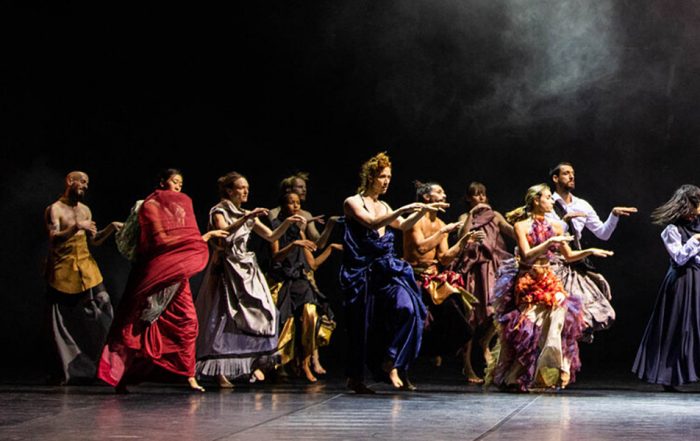
PEIRAIOS 260 Η – DANCE – FRANCE
22 & 23 June
EMANUEL GAT DANCE
LOVETRAIN2020
French-based Israeli choreographer Emanuel Gat presents a celebration of vitality and euphoria at Peiraios 260. Bodies coming together and apart, dynamic group choreographies, duets and solos, all unfold to the sounds of unforgettable hits by Tears for Fears, the British new wave band, recalling the synth-pop utopian atmosphere of the 1980s. The costumes, designed by Thomas Bradley, a dancer of the group, serve and showcase Gat’s directorial style in an ideal manner through their volume and theatricality. Meanwhile, the chiaroscuro lighting, created by the choreographer himself, further emphasizes the Baroque, glamorous, exuberant vibe of the performance.
According to the choreographer, LOVETRAIN2020 is a piece about utopia: that impossible, idealized non-place where co-existence without conflict can become reality. Far from being presented as an idea, utopia in Gat’s works is realized through the manner in which the choreography is created. Thanks to his long-standing collaboration with the dancers of his company, Gat has developed a springboard for the artistic exploration of human interaction and experience. The core of his approach lies within this realm of human experience, in what happens in the here and now and how all this is transformed into choreography. A daily practice striving to achieve utopia, a utopia that is by definition unfeasible (and even if it can be rehearsed in a dance studio, it still has no place there) in the real world.
Choreography – Lighting design Emanuel Gat • Music Tears for Fears • Costume design Thomas Bradley • Costume construction Thomas Bradley, Wim Muyllaert • Co-created and performed by Eglantine Bart, Thomas Bradley, Robert Bridger, Gilad Jerusalmy, Péter Juhász, Michael Loehr, Emma Mouton, Rindra Rasoaveloson, Ichiro Sugae, Karolina Szymura, Sara Wilhelmsson, Jin Young Won. • Technical direction – Light supervision Guillaume Février • Sound Frédéric Duru • Wardrobe Marie-Pierre Calliès • Production Emanuel Gat Dance / Marjorie Carré, Mélanie Bichot • Co-production Festival Montpellier Danse 2020, Chaillot – Théâtre national de la Danse, Arsenal Cité musicale – Metz, Theater Freiburg • Support Romaeuropa Festival • Emanuel Gat Dance is supported by the French Ministry of Culture and Communication, DRAC Provence Alpes-Côte d’Azur, Région Sud – Provence-Alpes-Côte d’Azur, Conseil Départemental des Bouches-du-Rhône. LOVETRAIN2020 receives the support of Institut Français for its international tours.
22 June Post-show talk
*

PEIRAIOS 260 D – THEATRE – INTERNATIONAL CO-PRODUCTION
GREEK DEBUT – UNITED KINGDOM – FRANCE
23 – 26 June
ALEXANDER ZELDIN
The Confessions
Is it possible to have a fresh outlook on life? Is it possible to reach the core of human dignity by observing a person’s life over time? Having presented his latest work, Une mort dans famille, last February in Paris at Ateliers Berthier (Odéon-Théâtre de l’Europe), director Alexander Zeldin, a rising star of British theatre, makes his Greek debut, staging The Confessions, a narrative about the life of a woman drawn from conversations with his mother.
Born in 1985 to a Russian-Jew father and an Australian mother, Zeldin has worked in several places, including South Korea, Egypt and the Middle East. In 2011-2014, he worked as assistant to Peter Brook and Marie-Hélène Estienne. His trilogy The Inequalities, tackling the dramatic social effects of austerity in Britain, brought him international acclaim.
Written and directed by Alexander Zeldin • Set and costume design Marg Horwell • Movement – Choreography Imogen Knight • Lighting Design Paule Constable • Music Yannis Philippakis • Sound design Josh Anio Grigg • Associate director Joanna Pidcock • Production Compagnie A Zeldin / A Zeldin Company • Co-commissioned by The National Theatre of Great Britain, RISING Melbourne, Théâtres de la Ville de Luxembourg • Co-production Wiener Festwochen, Comédie de Genève, Odéon-Théâtre de l’Europe, Centro Cultural de Belém, Théâtre de Liège, Festival d’Avignon, Festival d’Automne à Paris, Athens Epidaurus Festival, Adelaide Festival, Centre Dramatique National de Normandie-Rouen • Supported by Cas Donald
Compagnie A Zeldin is supported by the French Ministry of Culture. Alexander Zeldin is an associated artist with National Theatre of Great Britain, Odéon-Théâtre de l’Europe, Théâtres de la Ville de Luxembourg, Centre Dramatique National de Normandie-Rouen.
24 June Post-show talk
*

PEIRAIOS 260 Β – DANCE
24 – 26 June
AGNI PAPADELI ROSSETOU
The Jouissance of Representation
How do we cope with time’s indelible imprint on the body? Halfway between the comic and the tragic, with subtle nuances and a multifaceted approach, choreographer Agni Papadeli Rossetou tackles the existential question of time and decay in her new piece The Jouissance of Representation. Her cornerstones are the concept of the “incomplete” pervading the grotesque, as theorized by Mikhail Bachtin, and Théodore Géricault’s painting.
The three performers of the piece, sometimes in contact with each other and forming clusters, sometimes solo, allow bodily forms to emerge through their dancing, snapshots of experience, familiar or uncanny images midway between reality and fantasy. Situations in which the flesh is present and spectators can recognize something familiar, something of their own, in them.
The incessant transformation of the dancers’ bodies from one form to the next generates jouissance. The term jouissance here is the one used in psychoanalysis, where it is not identified with pleasure but rather encompasses discomfort, pain and awkwardness; the response of the artist to wounds linked with the passing of time.
Choreography Agni Papadeli Rossetou • Assistant to the choreographer – Outside eye Marina Tsapekou • Music Andreas Ragnar Kassapis • Lighting design Maria Athanasopoulou • Performers Titi Antonopoulou, Sania Strimpakou, Agni Papadeli Rossetou
*
PEIRAIOS 260 Η – OPERA
29 & 30 June
MICHALIS PAPAPETROU – ALEXANDROS EFKLIDIS
The Fall of the House of Commons
by Alekos Lountzis and Orestis Papaioannou
A contemporary opera about the “broken ecosystem of postmodern cities”, as viewed by its creators. Increasingly reminiscent of a reflection on a turned off high-definition screen, the interior of present-day apartments is home to a mysterious co-existence of human and artificial intelligence. Home delivery is being provided for all the goods; relationships are woven together and burst out within; fantasies sound like ringtones.
Conversing with Edgar Allan Poe’s iconic short story “The Fall of the House of Ushers”, where house and tenants had merged into a closed circuit, the play trails the sounds produced by life within and outside the walls of today’s commonest kind of apartment. The self-referential universe of the couple inhabiting this apartment walks on a spectral balance. The anthropomorphic supervisor, Erika_7, always available to rewrite the memory of the house and provide solutions to the crossword puzzle of co-habitation, is a prominent figure here.
The dramaturgical dialogue with Poe is employed to demonstrate a juxtaposition of highbrow and kitsch as well as the functional combination of musical idioms from the archive of classic melodrama and the multistylistic assemblages of postmodern music. The musical composition draws on a wide range of genres, focusing on new hybrid trends of 21st-century vocal music.
Musical composition Orestis Papaioannou • Dramaturgy – Libretto Alekos Lountzis • English libretto Alekos Lountzis, Orfeas Apergis • Musical direction Michalis Papapetrou • Directed by Alexandros Efklidis • Set and costume design Giannis Katranitsas • Lighting design Christos Tziogas • Performed by three opera singers • Featuring a six-member orchestra ensemble • Executive production Arte Atene in collaboration with the non-profit American organization Greece in USA
*
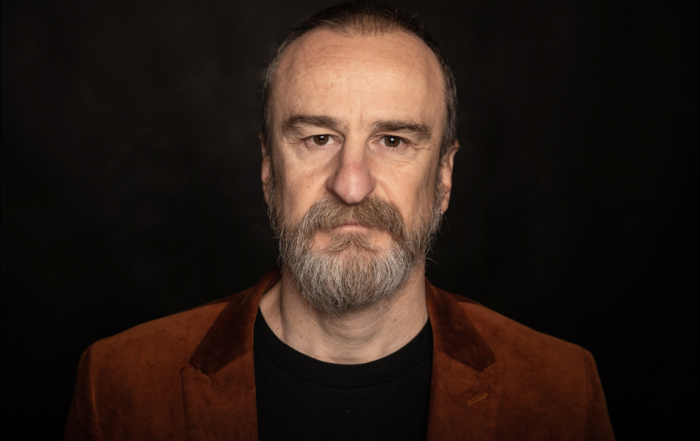
PEIRAIOS 260 Ε – THEATRE – grape
30 June – 3 July
PANTELIS DENTAKIS
A Rose is A Rose by Katerina Louvari Fasoi
How easy is it to be different? To think differently? When do the limits of being different collide with the limits of tolerance and social cohesion? Dionysia, the heroine of this original play by Katerina Louvari Fasoi, lives in an old house, the cats in her yard being her only company. She sings and dreams, wears colourful clothes, opens her home to strangers and locals alike, and is subjected to their hatred and mockery.
Inspired by the true story of Dimitra from Skala Sykamias in Lesbos, which shocked Greece, and guided by Martin Luther King Jr.’s book Strength to Love, the play addresses the brutality and blindness of humans. Similar to Christ, who, while crucified, gave us a lesson with the phrase “Father, forgive them, for they know not what they are doing”, Dionysia prays in her deathbed about the salvation of her soul and those of the teenagers who became her executioners. She will almost be relieved to welcome her death, believing in the power of forgiveness and the eternal kindness of humans. A moving, thought-provoking performance asking us to question any type of prejudice leading to the extermination of anything different. Pantelis Dentakis will direct the performance and Christos Stergioglou will portray the lead character.
Directed by Pantelis Dentakis • Movement Cecile Mikroutsikou • Costume design Kiki Grammatikopoulou • Set design Nikos Dentakis, Katerina Moschou • Lighting design Apostolis Koutsianikoulis • Music Nikos Kypourgos • Assistant to the director Katerina Louvari Fasoi • Executive production Neos Kosmos LP / Marina Gavriilidou, Nikos Symeonakis • Cast Christos Stergioglou, Giannis Papadopoulos, Thanasis Kromlidis, Vasilis Darmas, Yannis Seris
30 June Post-show talk
*
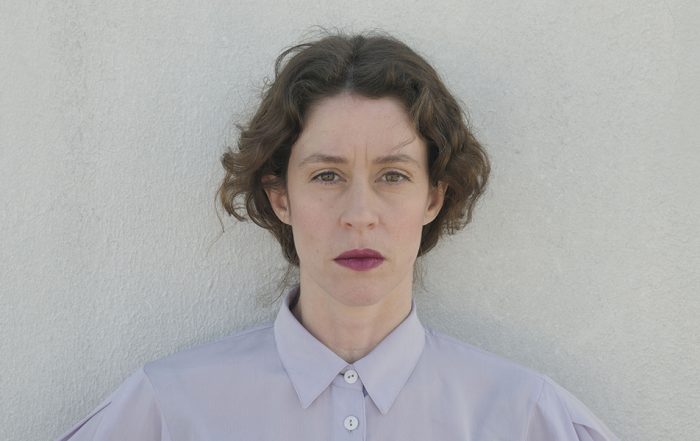
PEIRAIOS 260 Β – DANCE – grape
1 – 3 July
ANDRONIKI MARATHAKI & CLOUDSDONTHAVESHAPE
painfully painless
Let’s say “a dance for pain”
How does the body in pain move and communicate? Where are the boundaries between pain and pleasure in an era where the alternation between those two takes place instantly? The performance painfully painless seeks a sensory, pre-linguistic, unspeakable language, one that focuses on the mobility changes of a person in pain.
The ensemble approaches this subject matter through methods invented by humans for pain management, and develops the piece along two basis axes, one kinetic and one sonic. On the one hand, it focuses on the sensation of bodily pain. A body in pain moves in such a way as to always pursue and complete what is not there. It lives, organizes and regulates itself through memories from the time when it was “complete” and healthy. Its movement, presently elliptical, is realized every moment along with whatever is omitted. On the other hand, it guides us to listen to the particular language in which the phantom of pain expresses itself. Performers on the microphone recite mantras, words, instructions on pain management; they laugh, cry, breathe and everything is recorded, played back and gradually converted into audio frequencies. In this piece, the two aforementioned axes cross paths in multiple ways and instantly illuminate connections highlighting social, religious and cultural mandates on pain.
Choreography – Research Androniki Marathaki • Performance – Research Eltron Petri, Sofia Pouchtou, Despoina Sanida-Krezia, Despina Chatzipavlidou • Dramaturgical contribution Steriani Tsintziloni • Sound design – Live processing with electronic means Jannis Anastasakis • Visual installation design and construction Natalia Manta • Embedded systems Georgios Roustas • Lighting design Nysos Vasilopoulos • Artistic collaborator Eleni Mylona • External collaborators Filippos Vasileiou, John Britton, Mersianna Eleftheriadou, Kostis Kallivretakis, Giorgos Sioras Deligiannis, Leda Diochnou • Development consultant Rallou Avramidou • Executive production Delta Pi • Production Cloudsdonthaveshape • The “Let’s be comfortable in our own skin” dance practice is supported by Mykonos Biennale, Island Connect, Isadora & Raymond Duncan Dance Research Center, Unplugged Dance • Co-production Athens Epidaurus Festival, Cloudsdonthaveshape • Funded by the Hellenic Ministry of Culture and Sports and the NEON Organization for Culture and Development
*
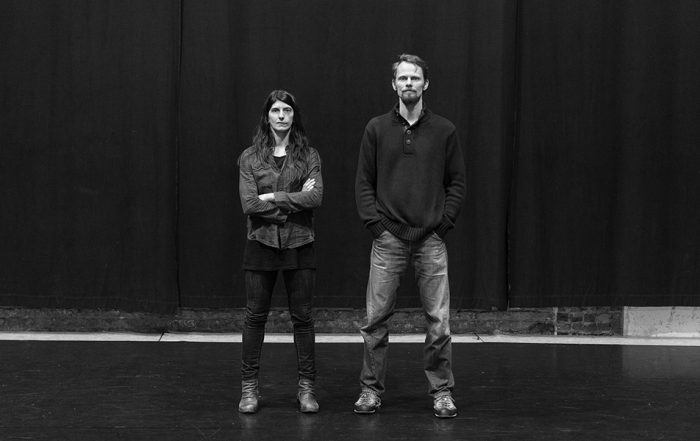
PEIRAIOS 260 D – DANCE – grape
3 & 4 July
ROOTLESSROOT
Silence
If something has been brutally banished from our current age of technology and information, that’s silence. The ever-present barrage of human activity causes endless noise. In addition to silence, the capacity to listen also seems to be fading away. However, what is silence? What dimensions can it assume?
In their latest piece, the RootlessRoot duo creates a world dedicated to silence and its power. They explore an unknown universe where silence communicates with all those listening carefully to it, with all those conversing with it and utilizing what it has to offer them. Silence is treated as an absolute condition, confronting those who participate in it with the mystery of their own selves and the world at large. Sometimes as a place of reflection, critical thinking and memory, sometimes as a place of faith, prayer and encounter with the divine, silence becomes the space for movement before the actual movement or action. Drawing material from philosophy, theology, poetry, literature and painting, the duo investigates the condition of silence as a medium of self-knowledge and an experiencing of the world. Via improvisations and exercises, the movement research will dictate the choreographic material and theatrical elements of this production.
Concept – Choreography Linda Kapetanea, Jozef Fruček • Set and costume design Paris Mexis • Lighting design Perikles Mathiellis • Musical composition Vassilis Mantzoukis • Sound design – Sound engineer Christos Parapagidis • Scientific associate Kostas Vrachnos • Texts edited by Ioanna Nasiopoulou • Props construction Ilianna Skoulaki • Performers (in alphabetical order) Maria Bregianni, George Dereskos, Anastasis Karachanidis, Maro Stavrinou, Christos Strinopoulos, Alexandros Vardaxoglou • Executive production Polyplanity Productions / Yolanda Markopoulou, Vicky Strataki • Co-production Athens Epidaurus Festival, RootlessRoot • Funded by the Hellenic Ministry of Culture and Sports
*
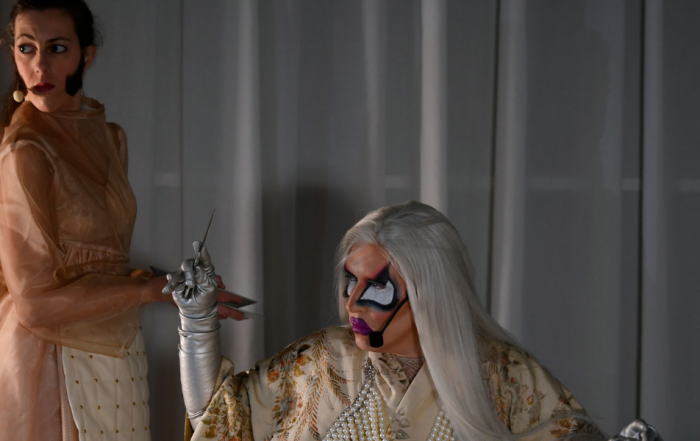
PEIRAIOS 260 Η – THEATRE – INTERNATIONAL CO-PRODUCTION – grape
4 – 6 July
ELLI PAPAKONSTANTINOU
The Bacchae
After Euripides
Elli Papakonstantinou’s The Bacchae is an original reading of Euripides’ tragedy, weaving ancient myth and research on gender fluidity together and making full use of new media, dance and sound, and mystical experiences. The dramatist immerses herself in the nebulous world of desire and mythical atrocities in order to speak out about a post-apocalyptic world in the face of an upcoming, ever-approaching catastrophe. Wealthy members of the upper middle class and their servant, in circumstances similar to those in Lars von Trier’s film Melancholia, are waiting any minute now for a meteorite to hit the Earth; a meteorite named “Dionysus” by the scientists. Dionysus arrives in person and guides the heroes to the Room of Desire. There is no other room more terrifying than that. To reach it, they must traverse a mysterious energy field, overcoming the fear of revelation, fall, contamination, decay, hubris and shame. The god Dionysus will not take refusal, postponement, contempt for an answer. He will execute his mission at all costs. A seismograph records every vibration shaking the house on a paper roll that ceaselessly unfolds on stage; a gigantic oscilloscope of the world. The play is built upon speech, music and a dance narrative, investigating a queer performing language, one that is pop yet contains classic operatic outbursts, at once dance-based, mystical and subtle. The Venezuelan alchemist of sounds Ariah Lester and the imaginative choreography of the French duo of Christophe Béranger and Jonathan Pranlas Descours also contributed to the creation of this multilingual play, with English, French, Spanish and Greek all heard on stage.
The Athens Epidaurus Festival performance will launch the European tour of this production, following its premiere at La Filature, Scène nationale de Mulhouse in France in March 2023.
Concept – Directing Elli Papakonstantinou • Text Chloe Tzia Kollyri, Elli Papakonstantinou • Choreography SINE QUA NON ART / Christophe Béranger – Jonathan Pranlas Descours • Musical composition Ariah Lester • Electroacoustic compositions – Interactive sound design installation – Technical coordination Lambros Pigounis • Set design Maria Panourgia • Video art – Live video performance Pantelis Makkas • Costume design Ioanna Tsami • Lighting design Marietta Pavlaki • Seismograph designed by Yiannis Kranidiotis • Assistant to the director Spyros Sourvinos • Texts co-edited by Louisa Arkoumanea • Dramaturgy collaboration Ariah Lester, Charis Kalaitzidis • Photos Alex Kat • Trailer Sideris Nanoudis • Tour production manager Laurent Langlois • ODC office manager Gina Zorba • Second assistant to the director Katerina Christakaki • Third assistant to the director Katerina Savvoglou • Assistant to the set designer Sofia Theodoraki • Assistant to the video artist Anthi Veloudogianni • Cast Vassilis Boutsikos, Georgios Iatrou, Chara Kotsali, Ariah Lester, Lito Messini, Aris Papadopoulos • Production ODC Ensemble • Co-production La Filature, Scène Nationale Mulhouse (FR), Festival de Marseille (FR), La Strada Graz Festival (AT), Romaeuropa Festival (IT), Teatro Nazionale di Genova (IT), Athens Epidaurus Festival • Residency Espace des Arts, Scène Nationale Chalon-Sur-Saône (FR) • Funded by the Hellenic Ministry of Culture and Sports
*
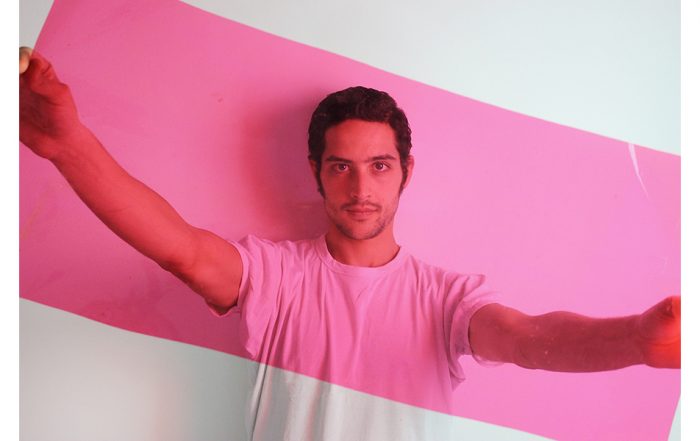
PEIRAIOS 260 Β – DANCE – grape
8 – 10 July
DIMITRIS MYTILINAIOS
Repair
Three iconic, short choreographic works – L’après midi d’un faune (Paris, 1912), Grand pas classique (Paris, 1949) and Tchaikovsky Pas de Deux (New York, 1960) – are scrutinized, analyzed and reconstructed as a choreographic collage, forming a new whole.
Repair is a quartet focusing on the notion of pas de deux, familiar to us through the history of ballet. The ambiguous title, Repair, primarily denotes an intention of “restoring” what a “dance duet” means today, taking into account the topical debate on gender identities. At the same time, as a pun, the title implies a re-pairing, as the duet here is actually performed by four dancers!
Despite the clear reference to historical sources, nothing is taken for granted. Every element used is differentiated from its original source, neither describing it nor representing it. Ballet is not approached as a form of movement but as a system revealing the dance situation to the performers. With meticulous technical precision and detail, the famous music works and choreographies are presented in a new “orchestration”. As such, a new relationship between them is forged, as composite aspects of the present piece.
Choreography Dimitris Mytilinaios • Music Lambros Pigounis • Lighting design Dimitris Kasimatis • Costume design Angelos Mentis • Make-up – Hairstyling Ioanna Lygizou • Assistant to the choreographer Elena Novakovic • Performers Amalia Kosma, Pierre Magendie, Konstantina Barkouli-Gavri, Dimitris Mitilinaios • Production howtomakeyourlifeharder • Executive production Olga Tsatsouli • Funded by the Hellenic Ministry of Culture and Sports • Supported by the NEON Organization for Culture and Development
The performance contains nudity.
*
PEIRAIOS 260 Ε – THEATRE – grape
8 – 11 July
THANASIS ZERITIS – HARRY KREMMYDAS / 4FRONTAL
Spyridoules by Nefeli Maistrali
Combining aspects of documentary theatre, original dramaturgy and contemporary Greek music, this performance by the well-known 4frontal ensemble takes the true story of Spyridoula, a 12-year-old housemaid, as its jumping-off point; a story that shocked the 1950s Greek public.
At the time, numerous poor, underage girls were adopted by prominent families as psychokores (foster daughters) to be employed as live-in servants in what was a peculiar condition of modern-day slavery.
One of them was 12-year-old Spyridoula Rapti from Mataragas, Agrinion, who moved to the Greek capital to work in the wealthy Veizade household. For two consecutive years, as revealed in the hospital, the Veizade couple abused her physically and mentally, even reaching the point of burning her face and body with the clothes iron. Nevertheless, Spyridoula mustered the courage to speak out, breaking the vicious cycle of violence. A popular idol and source of empowerment for several generations of women who have suffered abuse and managed to speak out and put an end to it, she continues to inspire people.
Drawing on historical documents such as the court records for the Giorgos and Antigoni Veizade trial, literary texts and contemporaneous narratives by women as well as present-day interviews of women working as live-in servants, Nefeli Maistrali has authored an original theatrical text. Utilizing this new text to the sounds of Greek punk music by Thrax Punks, the performance brings alive the voices of women who found themselves or still find themselves in this position, fighting for control of their lives.
Directed by Thanasis Zeritis, Harry Kremmydas • Dramaturgy Nefeli Maistrali • Set and costume design Georgia Bourda • Music design – Composition Thrax Punks • Movement Panos Topsidis • Assistant to the directors Eleni Tsimprikidou • Research Panagiotis Liaropoulos • Lighting design Sakis Birbilis • Executive production Aristea Stafylaraki – 4frontal • Cast Tassos Dimitropoulos, Stavros Giannouladis, Evangelia Karakatsani, Tatiana Anna Pitta, Argyro Theodoraki
10 July Post-show talk
*
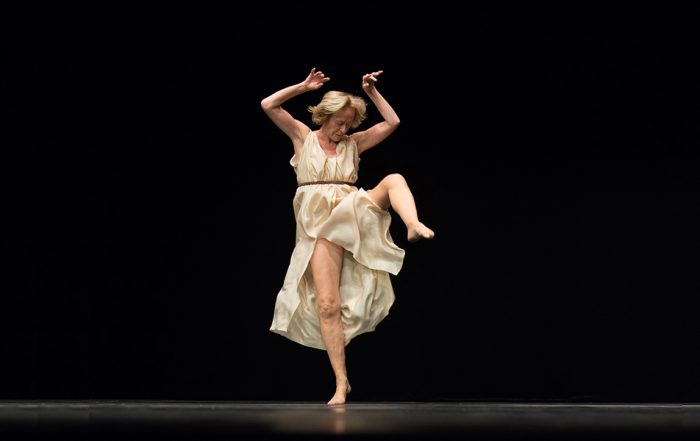
PEIRAIOS 260 Η – DANCE
9 & 10 July
JERÔME BEL
Isadora Duncan
Isadora Duncan, a performance by iconic choreographer Jérôme Bel, made for and in collaboration with Elisabeth Schwartz, focuses on the figure of Isadora Duncan, continuing the series of dancer portraits initiated by the choreographer back in 2004. Bel himself performs on stage, joined by one of the greatest students of the Isadorables group. Beneath the romantic figure, he discovers a visionary choreographer, investigating her legacy and the myths that accompany her.
In contrast to the previous instalments of this series (Véronique Doisneau, Cédric Andrieux and Pichet Klunchun and myself), in which Bel was in dialogue with the artists, here he creates the portrait of a dancer who is no longer alive, based on her autobiography. Duncan, widely regarded as the “mother” of modern and contemporary dance, had close ties with Greece, first visiting the country in 1903, with 2023 marking a 120-year anniversary of her visit.
Concept Jérôme Bel • Choreography Isadora Duncan • Performers Elisabeth Schwartz / Sheila Atala, Chiara Gallerani, Jérôme Bel • Co-production La Commune centre dramatique national d’Aubervilliers, Les Spectacles Vivants – Centre Georges Pompidou (Paris), Festival d’Automne à Paris, R.B. Jérôme Bel (Paris), Tanz im August/ HAU Hebbel am Ufer (Berlin), BIT Teatergarasjen (Bergen) • With the support of CND Centre National de la Danse (Pantin), MC93 (Bobigny), Ménagerie de Verre (Paris) • The R.B Jérôme Bel company is supported for its international tours by the Direction régionale des affaires culturelles d’Ile-de-France, the French Ministry of Culture, the Institut français and the French Ministry for Foreign Affairs
9 July Post-show talk
11 & 12 July: Complementary to the performance Isadora Duncan and in cooperation with the Isadora & Raymond Duncan Dance Research Center, a two-day workshop, led by iconic dancer Elisabeth Schwarz, will be held, alongside a discussion featuring Jérôme Bel, Elisabeth Schwartz and choreographer Menti Mega.
*
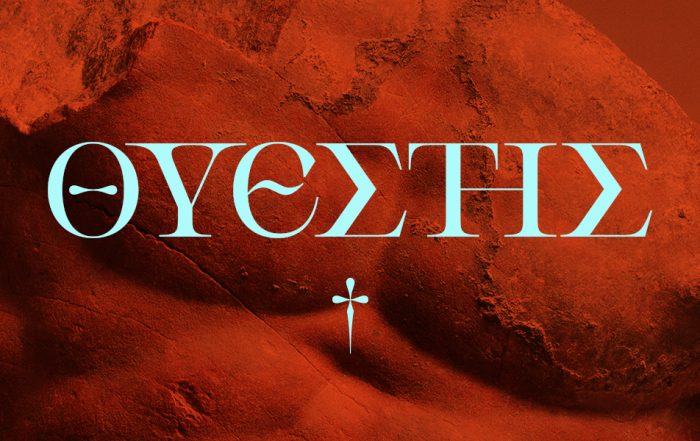
PEIRAIOS 260 D – THEATRE
10 & 11 July
THANOS PAPAKONSTANTINOU
Thyestes by Seneca
Thanos Papakonstantinou, noted for his distinctive, subversive directorial style, presents to the Festival a tragedy that has never been staged in Greece before, one of the darkest plays brimming with vengeance and immeasurable passion, full of striking imagery on a par with horror films and anticipating the Elizabethan and Jacobean revenge plays: Senecas’ Thyestes. The only fully extant tragedy tackling the myth of the Pelopidae, Thyestes dramatizes the so-called “Thyestean Feast”, Atreus’ terrifying act of revenge, as he murdered his brother’s children, cooked them and served them to him for dinner, an incident that put an end to the long-standing feud between the two brothers for royal power.
Infused with the uncontrollable and bloodthirsty political milieu of his time, the Roman orator, dramatist and stoic philosopher depicts a fallen, disintegrating world in his tragedies. Far from being a prosperous assembly of citizens, the state is but an arena, an absurd mass of monsters and beasts constantly devising ways in which they can ensnare and eliminate their opponents. Under this perspective, however far human society has progressed, darkness will always be looking for a crack through which it can surface and envelop everything. Indeed, in this play a solar eclipse plunges the city into darkness. The state is overrun; no longer the finest of citizens, the king is actually a great beast growling above his victims.
The form of the performance is inspired by the extensive messenger speech narrating the macabre feast ritual, with the director approaching the play as an oratorio of horror. Original electronic music and sound design serve as structural aspects of this audiovisual nightmare.
Conceived and directed by Thanos Papakonstantinou • Set and costume design Niki Psyhogiou • Original music Andys Skordis • Movement Nanti Gogoulou • Lighting design Christina Thanasoula • Sound design – Assistant to the director Fanis Sakellariou • Cast Konstantinos Avarikiotis (Atreus), Antonis Myriagos (Thyestes), Tasos Dimas (Ghost of Tantalus), Marianna Dimitriou (Erinys – Messenger) • Chorus Giorgos Dikaios, Michalis Panadis, Fotis Stratigos • Executive production BEE DRAMAQUEENS AMKE / Rena Andreadaki, Zoe Mouschi
*
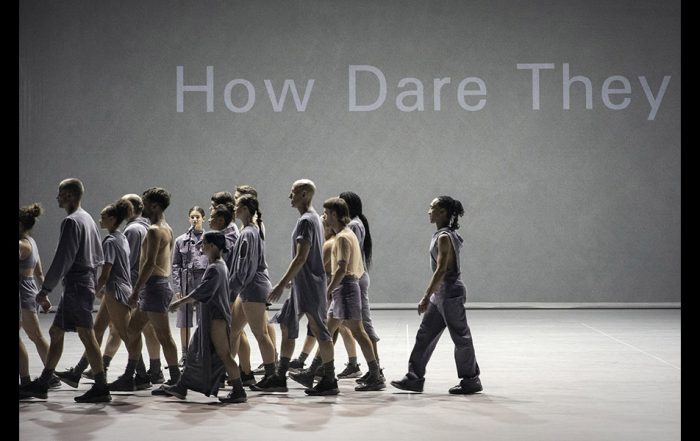
PEIRAIOS 260 D – DANCE
14 & 15 July
JAN MARTENS & DANCE ON ENSEMBLE
any attempt will end in crushed bodies and shattered bones
“Snowflakes, leaves, humans, plants, raindrops, stars and molecules all come in communities. The singular cannot really exist”
Paula Gunn Allen
Grandmothers of the Light: A Medicine Woman’s Sourcebook
Inspired by the numerous protests around the world and the need for social solidarity and resistance to state repression, avant-garde Belgian choreographer and performer Jan Martens returns to the Athens Epidaurus Festival, this time in collaboration with the Berlin-based Dance On company. Borrowing its title from a speech delivered by Xi Jinping, President of the People’s Republic of China, to the Hong Kong protesters in 2019, any attempt will end in crushed bodies and shattered bones had its premiere at the 2021 Festival d’Avignon. A production meant for a big stage, it incorporates the power of diversity as well as the co-existence of unique individualities into its very form, featuring a corps de ballet that is heterogeneous in terms of age and body type, consisting of 17 dancers aged 18-71 years old. The performance showcases each dancer’s unique, signature style within an ensemble demonstrating a joint physical and performative energy. Based on the intensely rhythmical Harpsichord Concerto by contemporary Polish composer Henryk Mikolaj Górecki, the choreography is embellished with pieces of resistance from the 1960s to this day by Max Roach and Abbey Lincoln to Kae Tempest.
Taking the phrase uttered by the Chinese president, translated and broadcast around the world in various ways, as his starting point, Martens observes that language in our times of “post-truth” serves primarily as an “ideological tool”. In addition to dancing, Martens also brings on stage language itself as a performing medium, introducing oral excerpts from Scottish writer Ali Smith’s novel Spring*, as well as online, written declarations of hatred, fragments of which are projected behind the dancers. The idea of a harmonious social co-existence may ultimately be but a utopia; we must constantly defend the possibility of being different together against the various reactionary voices.
[*Third part of the Seasonal Quartet series of novels. The Greek translation by Miltiadis Argyropoulos for Kastaniotis Editions is used in the performance.]
Choreography Jan Martens • Performed by Abigail Aleksander, Pierre Bastin, Georgia Boddez, Ty Boomershine, Truus Bronkhorst, Camilla Bundel, Jim Buskens, Baptiste Cazaux, Zoë Chungong, Piet Defrancq, Naomi Gibson, Simon Lelievre, Kimmy Ligtvoet, Solal Mariotte, Cherish Menzo, Steven Michel, Gesine Moog, Dan Mussett, Wolf Overmeire, Tim Persent, Courtney May Robertson, Laura Vanborm, Zora Westbroek, Loeka Willems, Lia Witjes-Poole, Maisie Woodford, Paolo Yao • Artistic assistance Anne-Lise Brevers • Lighting design Jan Fedinger (assisted by Vito Walter) • Costume design Cédric Charlier (assisted by Alexandra Sebbag, Thibault Kuhn) • Outside eye Marc Vanrunxt, Renée Copraij, Rudi Meulemans, Siska Baeck • Text Spring by Ali Smith, with the permission of Wylie Agency • Music copyright “Concerto pour Clavecin et Cordes Op 40” Réf Im 108884 Musique de Henryk Mikolaj Górecki © PWM Editions représenté par Alphonse Leduc Editions Musicales, “People’s Faces” written by Kae Tempest and Dan Carey © Published and Administered by Domino Publishing Company Limited (50%) and MANATA LTD Administrated by Warner/Chappell Music Belgium N.V. (50%), “Triptych Prayer/Protest/Peace” written by Maxwell Roach © Published by Milma Publishing Company Administered by Kobalt Music Publishing Limited • Technical manager Michel Spang • Tour technicians Michel Spang, Valentijn Weyn, Nele Verreyken • Photos Phile Deprez • Graphic design Luis Xertu • Teasers and trailers Stanislav Dobak, Jan Fedinger • Production GRIP • In collaboration with Dance On Ensemble • International distribution A Propic / Line Rousseau, Marion Gauvent and Lara van Lookeren • Co-production deSingel (Antwerp), Theater Freiburg, Sadler’s Wells (London), Festival d’Avignon, Julidans (Amsterdam), Le Gymnase – CDCN Roubaix Hauts-de-France, Norrlandsoperan (Umeå), La Bâtie – Festival de Genève και Association pour la danse contemporaine Genève, tanzhaus nrw (Düsseldorf), Le Parvis – Scène national Tarbes-Pyrénées, La Danse en grande forme (Project A-CDCN / ACCN CNDC Angers, Malandain Ballet Biarritz, La Manufacture – CDCN Nouvelle-Aquitaine Bordeaux / La Rochelle, CCN de Caen en Normandie, L’échangeur – CDCN Hauts-de-France, CCN de Nantes, CCN d’Orléans, Atelier de Paris / CDCN, Collectif Fair-e – CCN de Rennes et de Bretagne, Le Gymnase – CDCN Roubaix Hauts-de-France, Pôle Sud – CDCN Strasbourg, La Place de La Danse – CDCN Toulouse Occitanie), Perpodium (Antwerp) • Supported by De Grote Post (Ostend), Charleroi – Danse Centre chorégraphique de Wallonie-Bruxelles, CCN d’Orléans, Théâtre d’Orléans, December Dance – Concertgebouw and CC Brugge (Bruges), Flemish government, City of Antwerp, Tax Shelter of the Federal Government of Belgium, Cronos Invest • Thanks to Wannes Labath, de! Kunsthumaniora, Nadine Scheuer, Mr. Jean Chabert (Stanley/Stella)
*
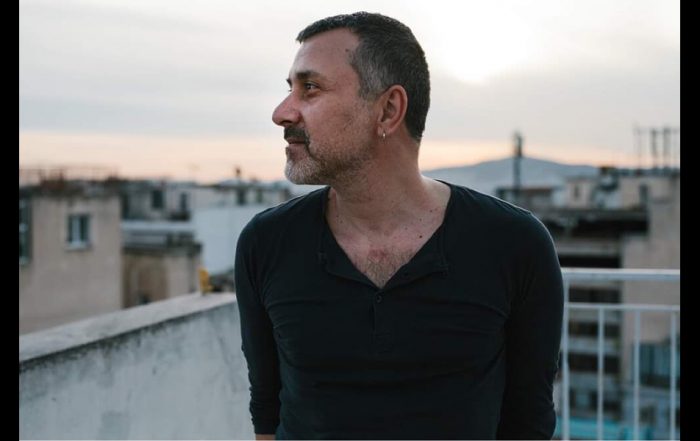
PEIRAIOS 260 Β – OPERA/ PERFORMANCE – grape
17 – 20 July
GIANNIS SKOURLETIS – BIJOUX DE KANT
Songs of the Greek People
Drag oratorio
Their aesthetics have been used in service of a subversive approach to Greek identity, built over the last few years in performances dedicated to major poets and writers tackling the notion of Greekness, from Vitsentzos Kornaros to Nikos Engonopoulos, from Giorgos Ioannou and Napoleon Lapathiotis to Ioannis Kondylakis. Once again this year, Giannis Skourletis and the bijoux de kant company “read” tradition in their own, peculiar manner, seeking inspiration from the great composer, conductor and pianist Giannis Konstantinidis (1903-1984), who hailed from Asia Minor. Using the pseudonym “Kostas Giannidis”, he made a name for himself in elafra (light) songs (“Ksypna Agapi Mou”, “Tha Xanartheis”, “Ta Nea tis Alexandras”, “Poso Lypamai”). During the last 20 years of his life, he focused exclusively on his classical work, using dimotika (traditional) songs as his basis.
Through his Twenty Songs of the Greek People song cycle, Konstantinidis created a hypertext, a “twofold” musical composition on a par with his entire artistic oeuvre. The dimotika tragoudia, so familiar to us, move here towards a new form, in a dialectical relationship with both Greekness and the Western musical tradition.
Using Konstantinidis’ charming song cycle as a springboard, alongside texts by artist and researcher Alexandros Papadopoulos, three artists, namely drag baritone Nina Nai, performer Daglara and pianist Giorgos Ziavras, narrate a heartfelt story that could have been a screenplay for a Greek horror show. Amid an uncanny landscape designed by set designer Konstantinos Skourletis, they address the open trauma of patriarchy and deviation. They tell a story about a different, often unseen, kind of Greece, on the fringes of urbanization, in the vast country surrounding little towns, in the gaps in between them. Idols of a well-hidden personal experience, they recount the passions and pain of otherness in a dystopian world.
Conceived and directed by Giannis Skourletis • Music Giannis Konstantinidis / Kostas Giannidis • Set and costume design Konstantinos Skourletis • Lighting design bijoux de kant • Text – Translation Alexandros Papadopoulos • Dramaturgy – Artistic coordination Giorgos Papadakis • Assistant to the director TBA • Performed by Nina Nai (baritone in drag), Giorgos Ziavras (piano), Daglara (performer) • Production manager Asimenia Efhtymiou • Executive production bijoux de kant
*
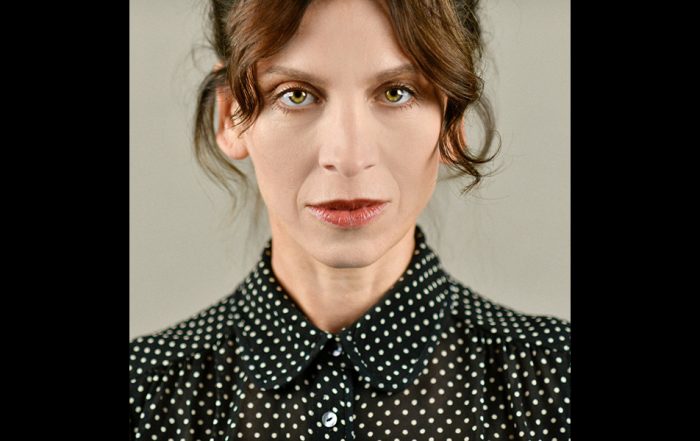
PEIRAIOS Ε – THEATRE – grape
17 – 20 July
ZOE CHATZIANTONIOU
Requiem for Fanny Goldmann
Based on the work by Ingeborg Bachmann
“She felt robbed, stripped of all her sentences and judments […] He had butchered her, turning her into sausage and meat. He had sliced her up. She was sliced up into 386 pages in a book […]”
(trans. P. Filkins)
Beautiful actress Fanny Goldmann becomes romantically involved with the obscure yet ambitious writer Toni Marek. After taking advantage of her connections, he leaves her for a younger woman. Subsequently, he turns her life into the subject of his first successful book. “She had told him things at night as she lay beside him, or while walking through a forest together, riding a bike, drinking their first coffee in a café” (trans. P. Filkins). All the things she had told him – in the two years they were together she had told him everything – find their way into his book. She becomes mortally ill when something unprecedented manifests and spreads in her body, mind and nervous system akin to a cancer: hatred. Abandoned and surrendering herself to alcohol, she becomes ill. Her hatred leads her to death.
“These crimes are so subtle that we can hardly perceive or comprehend them. […] Rather they require greater refinement, another level of intelligence and are themselves dreadful” (trans. P. Filkins). Requiem for Fanny Goldmann, a fragment of a novel by Ingeborg Bachmann (1926-1973), the “most intelligent and most important” Austrian writer according to Thomas Bernhard, was meant to be part of a novel cycle titled Todesarten (German for “Ways of death”). True to its title, the novel cycle describes stories of women, as Bachmann, who herself died under mysterious circumstances, investigates the ways in which female existence is eradicated by a patriarchal logic defining history, politics, religion, family, even women’s own self-perception.
Drawing on the elliptical style of Requiem, replete with brackets, ellipses and latent words that one encounters while attempting to decipher it, Zoe Chatziantoniou’s performance conjures a landscape of narrative fragments that bears similarities to Bachmann’s universe. Its main questions are: How does the latent fascism of everyday life creep into language and relationships? How is female subjectivity ultimately banished from a world in which it has no place?
Dramaturgy – Directing Zoe Chatziantoniou • Translated by Maria Angelidou – Angelos Angelidis • Set design Maria Panourgia • Music – Sound Georgios Mizithras • Dramaturgy consultant Armin Kerber • Dramaturgy and director assistant Dimitra Thomaidou • Video Pantelis Makkas • Lighting design Dimitris Kasimatis • Assistant to the set designer Nadia Kassara • Cast Alexia Kaltsiki, Elina Rizou, Chara Mata Giannatou, Anna Kalaitzidou • Executive production Konstantina Angeletou • Executive production Lykofos
The Greek translation by Maria Angelidou was published by Agra Publications (Athens, 1992) and released as Ρέκβιεμ για τη Φάννυ Γκόλντμαν (Από τα προσχέδια ενός μυθιστορήματος).
18 July Post-show talk
*
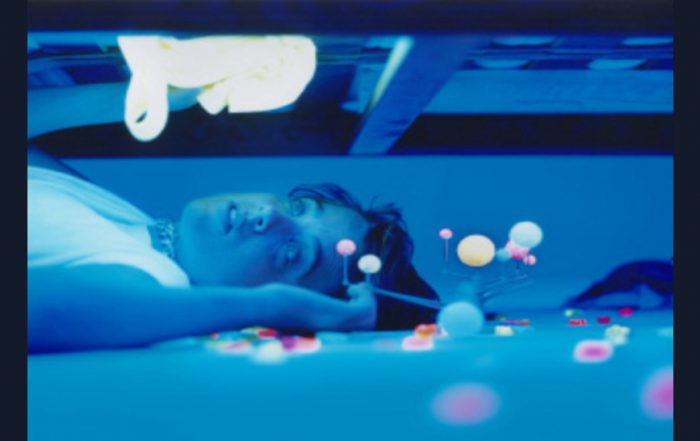
PEIRAIOS 260 D – THEATRE – FRANCE
19 & 20 July
GISÈLE VIENNE
L’Étang (The Pond) by Robert Walser
Drawing on dance, music and theatre, director and choreographer Gisèle Vienne has been building her own, atmospheric world, noted for its strong visual elements, for the past 20 years. She was first introduced to the Greek audience in 2018 with the performance Crowd, a piece about the dark relationship between the personal and the collective sentiment. This year, she will present the riveting L’Étang at the Festival, a piece that had its premiere in 2021 at the Théâtre de Vidy-Lausanne in Switzerland and is based on Robert Walser’s short play Der Teich (German for The Pond), tackling a dysfunctional family environment.
A boy, feeling rejected by his family, desperately fakes his own death, supposedly drowning in a lake. Vienne creates a powerful psychological drama, shedding light to Walser’s disturbing insinuations about child abuse, incest and family trauma. Vienne’s two performers, sharing 10 roles on stage, the hypnotic lighting and the minimal electronic music by Stephen O’Malley bring to the surface repressed urges and pent-up emotions. The self is scattered amidst all the pain. Every sentence is shrouded in doubt. Were all these things truly narrated or was it just a dream? While Walser’s text offers a sliver of hope for reconciliation, there is no happy ending in Vienne’s world. The trauma is too deep.
Having studied music, philosophy and puppetry, Gisèle Vienne, born in France in 1976, founded her own theatre company in 1999. Since then, she has created a total of 11 performances and 7 productions in collaboration with Etienne Bideau-Rey, presented all around Europe, Asia and America.
Concept – Directing – Set design – Dramaturgy Gisèle Vienne • Performers Adèle Haenel, Julie Shanahan • Text adaptation Adèle Haenel, Julie Shanahan, Henrietta Wallberg in collaboration with Gisèle Vienne • Lighting design Yves Godin • Sound Adrien Michel • Musical direction Stephen F. O’Malley • Original music Stephen F. O’Malley, François J. Bonnet • Tour assistant Sophie Demeyer • Outside eye Dennis Cooper, Anja Rottgerkamp • Set design collaboration Maroussia Vaes • Puppet concept Gisèle Vienne • Puppet construction Raphaël Rubbens, Dorothéa Vienne-Pollak, Gisèle Vienne in collaboration with Théâtre National de Bretagne • Set production Nanterre-Amandiers CDN • Set design and props Gisèle Vienne, Camille Queval, Guillaume Dumont • Costume design Gisèle Vienne, Camille Queval • Wigs – Make-up Mélanie Gerbeaux • Sound engineers Mareike Trillhaas, Adrien Michel • Lighting manager Iannis Japiot, Samuel Dosière • Stage managers Antoine Hordé, Jack McWeeny • Performance created in collaboration with Kerstin Daley-Baradel and Ruth Vega Fernandez • Special thanks to Etienne Bideau-Rey, Nelson Canart, Zac Farley, Etienne Hunsinger, Pauline Jakobiak, Tristan Lahoz, Richard Pierre, César Van Looy, Jean-Paul Vienne • Technical manager Erik Houllier • Production – Distribution Alma Office: Anne-Lise Gobin, Alix Sarrade, Camille Queval & Andrea Kerr • Management Cloé Haas & Giovanna Rua • Produciton DACM / Company Gisèle Vienne • Co-production Nanterre-Amandiers Centre dramatique national (Nanterre), Théâtre National de Bretagne (Rennais), Maillon Théâtre de Strasbourg – Scène européenne (Strasbourg), Holland Festival (Amsterdam), Fonds Transfabrik – Fonds franco-allemand pour le spectacle vivant, Centre Culturel André Malraux (Vandœuvre-lès-Nancy), Comédie de Genève (Geneva), La Filature – Scène nationale (Mulhouse), Le Manège – Scène nationale (Reims), Maison de la Culture (Grenoble), Ruhrtriennale, Tandem Scène nationale (Arras), Kaserne (Basel), Internationales Sommerfestival Kampnagel (Hamburg), Festival d’Automne à Paris (Paris), Théâtre Garonne (Toulouse), CCN2 – Centre Chorégraphique national de Grenoble (Grenoble), BIT Teatergarasjen (Bergen), Black Box Teater (Oslo) • With the support of CND Centre national de la danse, La Colline – théâtre national and Théâtre Vidy-Lausanne • Thanks to Point Ephémère for putting their rehearsal space at our disposal and to Playroom, SMEM, Fribourg for their sound studio • The Company Gisèle Vienne is supported by Ministère de la culture et de la Communication – DRAC Grand Est, the Région Grand Est and Ville de Strasbourg. • The company is supported by the Institut français for international touring and by Dance Reflections by Van Cleef & Arpels.
Gisèle Vienne is an associated artist at Chaillot – théâtre national de la danse, the MC2 Grenoble, the Volcan -Scène nationale du Havre and the Théâtre National de Bretagne.
19 July Post-show talk
*
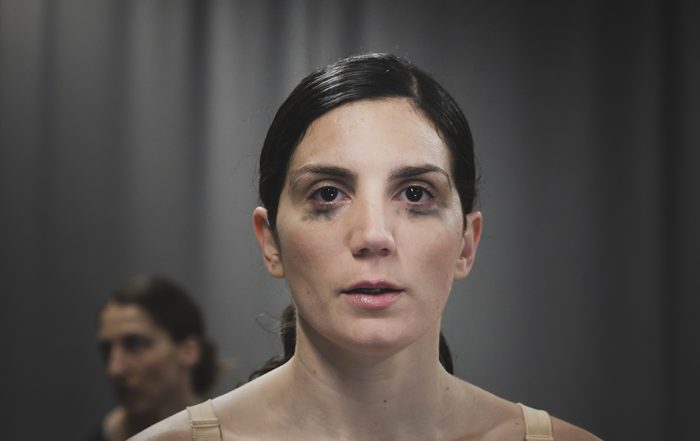
PEIRAIOS 260 Β – DANCE
INTERNATIONAL CO-PRODUCTION – grape
19 & 20 July
LENIO KAKLEA
Αγρίμι / Fauve
The Ardennes, the Black Forest, Broceliande, the Vexin. Forests are spaces that can elude immediate understanding. Here, humans and animals scatter and hide, stalking, pursuing and trapping each other. Places of calm and meditation, of ecstasy and vivid life, forests can also be threatening and toxic environments. In Αγρίμι / Fauve, Lenio Kaklea meticulously choreographs a “rewilding of bodies:. Through onstage exercises, dances and rituals, she explores the forest as a place – both physical and imaginary – for the dissolution of identities and the metamorphosis of bodies. Linking Kaklea’s choreographic creation to the geographical, environmental and poetic richness of the forests for the first time, Αγρίμι / Fauve presents dance as another wild zone to be defended.
Choreography – Stage direction Lenio Kaklea • Performance Lenio Kaklea, Georgios Kotsifakis, Ioanna Paraskevopoulou • Sound design – Technical direction Éric Yvelin • Set design Clio Boboti • Lighting design Bruno Pocheron • Costume design Olivier Mulin • Video Sophie Laly • Dramaturgy – Research Lou Forster • Creation assistant Dimitris Mytilinaios • Assistant set designer • Filanthi Bougatsou • Pole dance training Mandy Fragiadaki • Photos Maria Toultsa • Administration and production management Chloé Schmidt • Bookings KUMQUAT | performing arts (Gerco de Vroeg & Laurence Larcher • Production abd • With the support by Hermès Foundation enterprise • Co-production Kunstenfestivaldesarts Bruxelles (BE), Athens Epidaurus Festival, Serpentine London (GB), CND Pantin – Centre national de la danse (FR), Festival d’Automne de Paris (FR), Theater Spektakel Zürich (CH), Pôle Sud – CDCN de Strasbourg (FR), La Briqueterie – CDCN Val de Marne (FR), ImPulsTanz International Festival and DanceWEB Life Long Burning Network (AU), Le Dancing – CDCN de Dijon (FR)
abd – association le O receives the support of DRAC Ile-de-France under the 2023-2024 agreement subsidy.
*
7 June – 20 July / 23:00
JAZZ AT THE PLATEA
The Platea, the outdoor space connecting Halls A, B, E, and H at Peiraios 260, will come alive again this year, thanks to the highly successful “Jazz at the Platea” mini festival that was launched last year, keeping us company during the Festival evenings. Four unique jazz ensembles, under the artistic supervision of accomplished saxophone player Dimitris Tsakas, will invite us to a jazz celebration, with free admission for everyone, after the end of performances. The programme will run in parallel to the entire Peiraios 260 programme, from June to July 20th.
The following ensembles will participate:
7 – 9 June
Adedeji Adetayo Sextet
Nigerian Adedeji Adetayo, singer, guitarist and composer, infuses the Peiraios 260 Platea with the liveliness and spark of African music. Three evenings with Afrobeat, Afro-jazz, Afro-soul and funk, music from his solo albums plus special guests.
3 – 5 July
Spyros Panagiotopoulos Quintet (BFAM)
Following the release of their album Happy Hour, drummer Spyros Panagiotopoulos and his quintet will present jazz music composed by members of the band.
9 – 11 July
Terry’s Quartet
Singer Terry Vakirtzoglou presents her latest project as part of the Jazz at the Platea event. The quartet comprises a group of accomplished musicians, each of whom has carved out their own path in the Greek jazz scene. This concert marks the first time they all come together to perform. The programme will include some of Terry’s old and new compositions from her first album, Qualia, and the second one, soon to be released, Permathea, alongside arrangements from beloved jazz songs.
17 – 19 July
Apostolos Leventopoulos Trio feat. Vasilis Xenopoulos
Apostolos Leventopoulos’ compositions combine traditional jazz style with more contemporary compositional and improvisational approaches, fusing the lyrical sound of the guitar with the explosive sound of the organ trio.
20 July
Party concert
Crazy People Music
Established jazz musicians and virtuosos come together for a special party concert, marking the end of the Peiraios 260 programme.
Musicians Dimitris Tsakas, Antonis Andreou, Alexandros-Drakos Ktistakis, Adedeji Adetayo, Kostas Christodoulou, Dimitris Sevdalis, Giorgos Georgiadis • Sound engineers Dimitris Karpouzas, Nikos Kollias • Executive production ARTos & Theama / Anastasia Tamouridou
NATIONAL THEATRE OF GREECE
NIKOS KOURKOULOS STAGE – THEATRE
1 – 4 July
DIMITRIS BAMPILIS (APARÄMILLON)
Catastrophe
The world is collapsing. Or so it seems at least, as we have been feeling, increasingly strongly, for a while now. The world economy is in recession; the clock of climate crisis is counting down; the pandemic threatens our social ties; amid the apparent peace prevailing in the West, war is a reality.
Six citizens of this collapsing world, some of them artists, others not, yet all of them sharing a common anxiety about the future, find themselves stranded on a stage that also doubles as a shelter, seeking the Great Solution that will save us from the impending Catastrophe. As available food supplies are running low, their inventiveness is increased and their references to political movements and philosophers are intensified, as are their love and longing for art, dance and music.
The dramaturgy of this performance is predicated upon interviews and field research in areas in the aftermath of catastrophic natural phenomena. The production references writers such as David Sepkoski, Maurice Blanchot, Walter Benjamin and Jean Baudrillard as well as drawing on participants’ experiences, fusing the fantastic with the real, an aspect that defines the current aesthetic pursuits of the ensemble.
Directed by Dimitris Bampilis • Dramaturgy Dimitris Bampilis, Georgia Kanellopoulou • Set and costume design Daphne Aidoni • Original music – Sound design Manolis Manousakis • Lighting design Eleni Choumou • Research collaboration Dimitra Loupi • Production manager Katerina Kourti • Cast Giorgos Vourdamis, Irini Kyriakou, Manolis Manousakis and “Catastrophe experts”
*
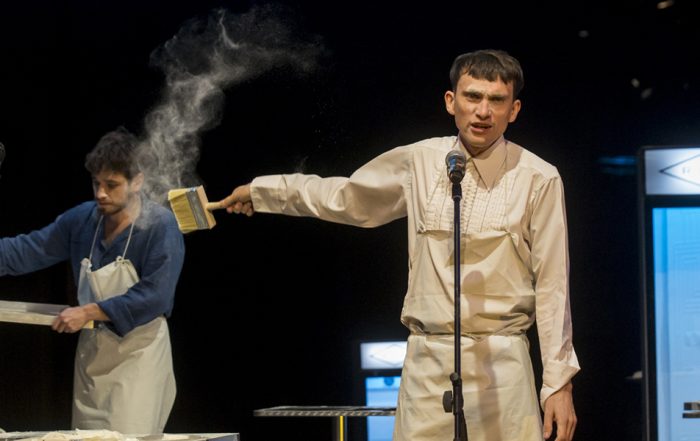
NIKOS KOURKOULOS STAGE – THEATRE / REPETITION
6 – 8 July
ANESTIS AZAS
The Republic of Baklava
Following a string of sold-out performances in Greece and abroad, including Sarajevo (MESS International Theatre Festival – Best Actor Award to George Katsis), Skopje (MOT Festival) and Zurich (Kurtheater Baden), The Republic of Baklava, an Athens Epidaurus Festival 2021 commission as part of the 1821 Bicentennial tribute, returns to the Festival for only two performances. Anestis Azas’ performance is set in modern-day Greece, halfway between fiction and documentary, even though its plot is fictional. Featuring a mixed couple, a Turkish man and a Greek woman, who decide to found their own nation-state, with their home and private business as their headquarters, the production theatrically renegotiates tensions that have been active since the Greek Revolution. Through a number of hilarious situations, the heroes are confronted with the contradictions of contemporary Greek society, the problem of national identity and the utopian reality of a future, universal, digital nation, taking us along for the ride.
Conceived and directed by Anestis Azas • Text Gerasimos Bekas, Michalis Pitidis, Anestis Azas • Assistant to the director Michalis Pitidis • Set design Eleni Stroulia • Assistant to the set designer Zaira Falirea • Costume design Vassilia Rozana • Lighting design Eliza Alexandropoulou • Sound design – Music Panagiotis Manouilidis • Video Dimitris Zachos • Executive production Kostis Panagiotopoulos • Cast Katerina Mavrogeorgi, Cem Yigit Üzümoglu, George Katsis, Gary Salomon
EXPERIMENTAL STAGE – THEATRE
17 – 20 July
YORGOS VALAIS
Run – A Stage Essay About the Lack of Time
Why does time nowadays go by faster than ever before? Where does this sense of constant acceleration of things come from? How do we cope with time as a society and how are we affected by the constant lack of time? Yorgos Valais’ new performance draws inspiration from contemporary work-related and social reality, as well as drawing on T. S. Eliot’s Four Quarters, Ecclesiastes and Byung-Chul Han’s essays The Burnout Society and The Scent of Time.
Conceived as a kaleidoscopic reflection, the performance seeks its material through its very process of creation. A group of actors/artists prepares a production about the lack of time. Inside a spacious lounge, during a break, artists and technicians meet for a short period of free time, a “pause” made of daydreaming materials, stress, prior commitments and duties, whilst a live camera captures these moments of emptiness, freedom or escape.
The materials of the dramaturgy, each character’s separate concerns and their relationship with time emerge at that still moment of revolving time, becoming the condition that sends the narrative thread spinning.
Directed by Yorgos Valais • Dramaturgy Yorgos Valais, Georgia Kanellopoulou • Music design – Sound processing Voltnoi Brege • Choreography – Movement Yiannis Nikolaidis • Set and costume design Eleni Stroulia • Lighting design Tassos Palaioroutas • Cast Konstantinos Gogoulos, Romanos Kalokyris, Christiana Toka et al.
Full cast and credits to be announced shortly.
*
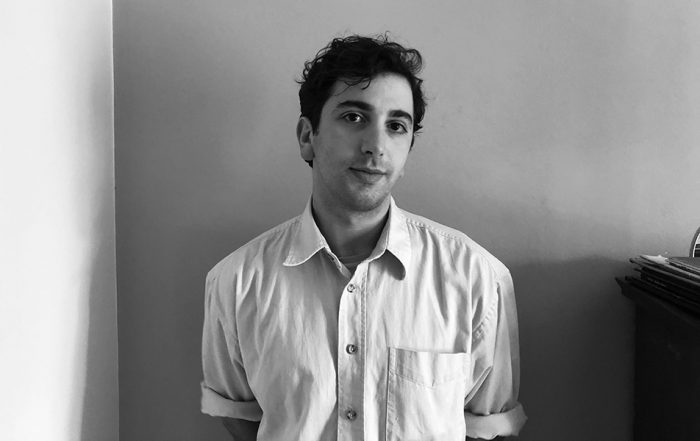
ELENI PAPADAKI STAGE – THEATRE
18 – 20 July
MARIO BANUSHI
Taverna Miresia
Mario, Bella, Anastasia
A rising young theatre artist (born 1998), of Albanian descent, Mario Banushi uses his personal memories as dramaturgical material in order to transform them into a ritualistic act of catharsis.
A neon restaurant sign in a Tirana suburb sheds light to the history of a family. An unexpected incident under the light of this sign has a crucial effect on Mario’s life. Years later, now an adult, director Mario Banushi, who had been travelling from Greece to Albania for years to meet his family and return to the family taverna, now carries that same sign from Albania to the Festival, placing it in a prominent place, at the centre of the world he creates on stage. Through a performance, he welcomes his memories and nostalgia in order to confront the absence of his father who recently passed away; the cook and taverna owner who used to welcome customers every night.
What is there left for this sign to illuminate? A return to the land of childhood, at a time when joy and despair took turns, and a meal was tantamount to care; the family table with the now empty chairs; a sequence of connotations, images, fragments of memories and everything that was never spoken due to lack of time; a farewell to the father, a welcome to adulthood and the existential anxieties that come with it.
*Miresia is Albanian for kindness
Conceived and directed Μario Βanushi • Set design Sotiris Melanos • Lighting design Eliza Alexandropoulou • Music Jeph Vanger • Dramaturgy collaboration Aspasia-Maria Alexiou • Cast Savina Yannatou, Chryssi Vidalaki, Katerina Kristo, Mario Banushi, Eftychia Stefanou • Production manager – Executive production TooFarEast • In collaboration with Theatro sti Sala.
ATHENS CONSERVATOIRE
Subset Festival ⊆ – New music festival
The Athens Epidaurus Festival at the Athens Conservatoire
Curated by Stavros Gasparatos
The Subset Festival borrows a mathematical term (“subset” ⊆) for the name of an avant-garde new music festival held as part of the Athens Epidaurus Festival at the brand-new stages of the Athens Conservatoire. This five-day event will incorporate a wide range of artistic works, in the hopes of bringing diverse versions of contemporary musical creation and presentation into contact with each other. Within these five days, the three Athens Conservatoire stages will host by turns musical ensembles, sound and visual installations as well as musical performances in a multifaceted and particularly extroverted musical platform. Drawing on a series of works chosen by the Athens Epidaurus Festival open call, artists from around the world, established and up-and-coming alike, will present their works in Athens and converse with one another, involving every one of us in this dialogue. With that in mind, participating artists will share their modus operandi with the audience in the form of special workshops and discussions. At the same time, directors and curators of similar events from across the globe will have the opportunity to be familiarized with the diverse contemporary Greek music scene.
The Subset Festival includes two commissions to contemporary Greek ensembles, TETTTIX and Trigger Happy, both of which are creating new works/installations for the Festival at the new stage of the Athens Conversatoire. Furthermore, established contemporary music artists, Greek and international, are participating (Ergon Ensemble, Vinyl -terror & -horror, MMMΔ & ALEM) as are avant-garde electronic musicians from Europe, Greece (Saber Rider) and foreigners (Robert Henke, Kali Malone, Hekla, Sébastien Roux), some of whom are making their Greek premiere. Special emphasis will be placed on the outreach of the programme through laboratories by Triger Happy, ΤΕΤΤΤΙΞ, Sébastien Roux AND Robert Henke in collaboration with Goethe-Institut Athen.
AMPHITHEATRE
21 June
Saber Rider
Saber Rider’s music is based on the creation and transformation of improvisational material drawn from both acoustic and electronic sources, resulting to audio collage experiments with ambient and dream pop aspects. Her first album, Heaps (2021), was released digitally and in tape form by the Just Gazing Records label. In the end of 2022, a live improvisational LP was created jointly with Αnna vs June (Submersion Records).
Saber Rider is a composer, producer, performer, DJ, ballet piano accompanist, post-production engineer, sound designer and piano teacher, among other things. Her work is always centred around electronic/electroacoustic composition, sampling and free improvisation, and she has been working together with artists of the performing arts and visual media. She studied piano and composition in Athens and London as well as Brazilian percussion and music for image. Furthermore, she has been the manager of the British jazz record label F-IRE Collective.
At the Subset Festival she will perform tracks from Heaps and new compositions, in collaboration with her long-standing fellow musician and multi-instrumentalist Dimitris Chatzizisis (Foken), most of which will be performed live for the first time.
Saber Rider synths, electronics, FX, Dimitris Chatzisisis guitar, violin, FX Sound engineer Christos Parapagidis
*
AMPHITHEATRE
21 June
Vinyl -terror & -horror
Greta Christensen and Camilla Sørensen, alias Vinyl -terror & -horror, explore the turntable and vinyl record in their rawest form. The visuality and physicality of the record grooves allows them to transform the playback medium into sculptural objects.
Their broken records – reassembled into “cut-ups” like a collaged image – deliberately interrupt the musical flow of the samples, facilitating looping patterns and unexpected structures while mixing found sounds from across a wide spectrum of genres, from classical, folk and schlager music to vintage movie sound effects. In live concerts and sound installations, Vinyl -terror & -horror constantly push the idea of the turntable as an instrument to its limits.
*
NEW STAGE
21 & 22 June
Trigger Happy
In Medias Res
A four-member experimental music ensemble, Trigger Happy were formed in Corfu in 2016. In their concerts, they are noted for their intense energy using a blend of cracked media, conventional instruments, electronic and electroacoustic equipment, toys and objects. Each of their performances is centred around idiosyncratic orchestrations and musical objects/instruments.
They have performed both at Greek and international festivals, including Irtijal Festival (Beirut, 2019), Borderline Festival (Athens, 2019), Rhubaba Gallery (Edinburgh, 2018), Embros Theatre (Athens, 2017) and Electric Nights Festival (Athens, 2017).
The original sound work they are going to present at the Subset Festival is specially designed for the New Stage of the Athens Conservatoire. The hybrid In Media Res (running time: 60΄) is a work for 4 performers and a collection of analogue and digital sound recording and reproduction media. Is it based on a combination of aspects of performance and installation, with the musical composition principally guided by the spatial placement of objects, speakers and performers. Furthermore, the two performances of this work are complemented by an artistic workshop presenting the methodology behind its creation.
A study on the reuse and transformation of sound technological means from the past, the work utilizes a great collection of radios, reel-to-reel audio tape recorders, cassette players, CD players, record players, MP3 players and hard drives, exploring all the musical textures these devices can offer, from lengthy sound clouds to sparse pointillistic sound events in different spatial points, from sound collages of found popular music records to abstract sounds of digital errors.
In Media Res is ultimately a ritual of embodying forgotten and “fallen” media, an exploration of traces of sound via their recording, storage and broadcasting, as well as an exploration of the very ontology of objects. Opening up a rupture in the linearity of technological development, briefly suspending time, it gives us the opportunity to listen closely to the significance of technological media in both art and life.
TRIGGER HAPPY Manthos Karras, Georgios Mizithras, Giorgos Stavridis and Giorgos Stenos-Frantzios
*
AMPHITHEATRE
22 June
MMMΔ & ALEM
L’âge de l’absolutisme LIVE
MMMΔ, alongside Baroque organist virtuoso ALEM, make a live presentation of the album L’âge de l’absolutisme, released by Antifrost in 2021. Idiosyncratic masterpieces and watersheds of late Baroque music (“Adagio” from Alessandro Marcello’s Oboe Concerto in D minor, “Sarabande” from Handel’s Keyboard Suite in D minor, “Air” from Johann Sebastian Bach’s Orchestral Suite No. 3 in D major) are combined in an unconventional performance. The typically rich and bass sound of ΜΜΜΔ produces a fertile distortion in a unique dialogue with ALEM’s keyboards, leading to an unexpected collaboration.
MMMΔ Nikos Veliotis electric cello, Ilios sound generators • Alem harpsichord, portable organ, clavichord • Kalliopi Mitropoulou violin
*
AMPHITHEATRE
22 June
Kali Malone
American composer and musician Kali Malone’s minimalist compositions for organ, choir, chamber music ensembles and electroacoustic formats have thrilled audiences around the world. Rich in harmonious texture through synthetic and acoustic instrumentation in repetitive motions and extended durations, Malone’s music emits distinct dynamic and emotive hues bringing forth a stunning depth of focus.
Kali Malone, who recently co-founded the XKatedral record label, alongside Maria W. Stockholm, has presented her music worldwide at concert halls, churches, museums and festivals in Europe and North America, including Musica Festival (Strasbourg), Berlin Atonal, Moogfest (Durham, North Carolina), Hamburg Elbphilharmonie, Philharmonie de Paris, Radio France, Rockefeller Chappel (Chicago), Grace Cathedral (San Francisco) and The Southbank Center (London), to name a few. She has collaborated with artists such as Stephen O’Malley, Lucy Railton, Frederikke Hoffmeier, Leila Bordreuil, Drew McDowall, Caterina Barbieri, Ellen Arkbro and numerous others.
*
AMPHITHEATRE – GREEK DEBUT
23 June
Hekla
Internationally acclaimed scholar of solo theremin, Hekla Magnúsdóttir (Iceland) uses her instrument as an otherworldly and highly evocative siren call. By turns spectral weeping and lamenting howl, it constitutes a second voice inviting us to a soft vocal delivery, as if her studio had been haunted by a chorus of ghostly backing singers.
Hekla’s debut album, Á, released by Phantom Limb, was written and recorded in her home studio in Berlin, at a time when she was also busy taking care of her newborn son. Back in Iceland, her music career continued with the mystical, fantastical EP Sprungur, a series of fantasy/horror scores themed around glaciers, a concept that was further developed in the Xiuxiuejar album, released in 2022. Hekla regularly receives accolades for her work in films, performs locally and globally, both solo and as part of various ensembles, and is very active in the Icelandic music scene.
*
ARTS LOUNGE
23 June
Sébastien Roux
Sébastien Roux, one of the most acclaimed contemporary electroacoustic music artists, presents his work in various media, from CD and records to public listening sessions, sound installations, sound walks and radio pieces. He also experiments with listening conditions, the concept of soundscape and formal restrains in composition. In 2011, he began to develop an approach focusing on the principles of translation, “transposing” visual, musical and literary works of art into musical scores. His work on musical translation defines his electroacoustic style. In addition to his solo works, Roux has several major collaborations in theatre and dance under his belt.
*
AMPHITHEATRE
24 June / 21:00
Robert Henke
CBM 8032
Both as an artist and as a scientist, German Robert Henke is hailed as one of the most important contemporary electronic music artists. Founder of the legendary Monolake music project and co-creator of the Ableton software, used in recording studios around the world, Henke will present a work titled CBM 8032 AV. Using computers dating from the early 1980s, CBM 8032 AV explores the beauty of simple graphics and sound. At the same time, it conveys a sense of ambivalence between a contemporary aesthetics and the usage of obsolete, 40-year-old technology. In CBM 8032, all the materials of the audiovisual experience have been constructed based on 1980s techniques and digital media. However, the artistic result is clearly a part of today’s cultural milieu. When artists began exploring computers as a medium during the 1950s, technology was limited and the resulting minimalism in expression was a necessity. Half a century later, the once promising sight of the green cathode-ray tube display seems both nostalgic and a novelty.
*
NEW STAGE
24 & 25 June
TETTTIX – Eleni Houmou
cheVron fold
The performance cheVron fold, a TETTTIX music ensemble and Eleni Houmou collaboration, is an immersive experience combining contemporary music and lighting. The audience “sneaks” into a scenery with perspective, shaped by vertical, semi-transparent surfaces alluding to chevron folds. They are encouraged to interpret the abstract stimuli of sound and light in their own way. By turns one can see outlines of humans and objects or sources of light, movement and stasis, or the light may hide these completely. Musicians switch positions and sides, get closer or further away; the sound, amplified or otherwise, constantly changes our perception of the space.
The programme includes two works in their Greek premiere and three Greek works commissioned by the Athens Epidaurus Festival specifically for this performance. “Stirrings Still ΙΙ” (2008) by Rebecca Saunders, an inner monologue inspired by Samuel Beckett’s last work of prose, focuses on the relationship between movement and stillness. In Jo Kondo’s “Standing” (1973), a delicate “motor”, which constantly produces high notes, is activated. In Michalis Paraskakis’ “Translucencies”, from a simple aid, the microphone amplification of the instruments becomes a “hyper-instrument”. In “And Then She Saw Him”, Nikos Ioakeim sets Hector and Andromache’s meeting from Iliad’s Book 7 to music: the singers, as if hypnotized, seek each other inside the scenery. In Eleni Ralli’s “Hide Behind the Curtain”, the musicians who are neither visible to each other nor to the audience have to interact while balances constantly shift.
TETTTIX (with three Ts), an initiative of Michalis Paraskakis, was founded in 2017, by a group of young musicians united in their love for contemporary music and their long-standing acquaintance and collaboration. TETTTIX are noted for their eclectic combination of instruments, deviating from established combinations. They aim to create new repertoire through collaborations with composers from Greece and worldwide, as well as showcase 20th-century works. At the same time, they are inclined to improvisation and other music genres (pop, rock, rebetika, electronic, jazz, traditional), while also viewing their performances as compact shows, pursuing collaborations with artists from different fields.
*
AMPHITHEATRE
25 June
Ergon Ensemble
Reich / Richter – GREEK PREMIERE
The Ergon Ensemble presents two iconic works of Grammy Award-winning Steve Reich, Radio Rewrite and Reich / Richter. Having inspired contemporary artists such as John Adams and Brian Eno as well as major choreographers of our times, from Jiří Kylián and Jerome Robbins to Anne Teresa De Keersmaeker, Steve Reich is considered the greatest living American composer. In his extremely popular work for 11 musicians titled Radio Rewrite, he works on pop music material for the first time. More specifically, he draws inspiration from two Radiohead songs (“Jigsaw Falling into Place” and “Everything in its Right Place”).
Reich / Richter, a work for a big ensemble, is presented simultaneously with the film Moving Picture (946-3) by Gerhard Richter and Corinna Belz, performed in Greece for the very first time and constituting a unique experience for spectators/listeners, as the latter will watch two worlds gradually evolving and disintegrating through a continuous parallel movement of sound and image. The work was premiered in New York City from the Ensemble Signal in April 2019 and has since received glowing reviews in its presentations worldwide.
Musical direction Kasper de Roo
ANCIENT THEATRE OF EPIDAURUS
PERIODIC EXHIBITION
7 July – 26 August
Epidaurus exhibition hall
Medea
On the occasion of Frank Castorf’s production and Maria Callas’ 100th birth anniversary, the Epidaurus exhibition hall will be active again after a 22-year hiatus, thanks to the invaluable support of the Hellenic Ministry of Culture and Sports. The Museum’s re-opening will be inaugurated with a periodic exhibition dedicated to Medea, focusing of the presence of the tragic heroine at the Ancient Theatre of Epidaurus since 1956, when the National Theatre of Greece production of Medea was presented, directed by Minotis with the legendary Katina Paxinou in the title role. This periodic exhibition, open to the public throughout the performances at the Ancient Theatre, will include prized exhibits from the Festival archive and other cultural organizations and institutions (National Theatre of Greece, Cyprus Theatre Organization, Theatron Athinaion of Tzeni Karezi & Kostas Kazakos, Karolos Koun Greek Art Theatre, Desmoi, Spyros A. Evangelatos Amphitheatre, Municipal and Regional Theatre of Patras, Aplo Theatre, to name a few), which have staged Medea in Epidaurus. A special retrospective to productions of Euripides’ tragedy held at the most iconic national landmark of Ancient Drama from the 1950s onwards.
*
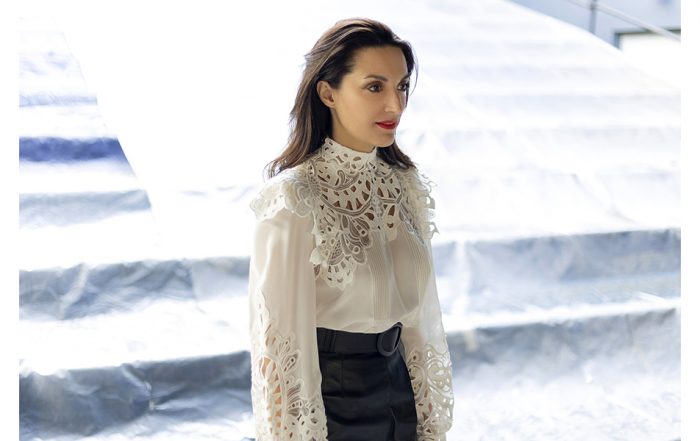
7 & 8 July
NATIONAL THEATRE OF GREECE
KATERINA EVANGELATOS
Hippolytus by Euripides
Katerina Evangelatos, distinguished theatre director and Artistic Director of the Athens Epidaurus Festival, returns to Epidaurus with a National Theatre of Greece production following their previous collaboration in Alcestis (2017), which had caused a sensation.
Aphrodite sets up a game of revenge and voyeuristically watches how humankind turns into a plaything for her whims. Her eye becomes our own eye and the characters are laid bare. The naked bodies are charged with explosion, desire, lust but also the innocence of the human race. A directorial perspective that delves into the savage world of Euripides’ play, approaching it as a contemporary nightmare amid a poetic scenery, where characters struggle with their weaknesses and where love is so mad it can’t help but be fatal. A stellar cast of 24 actors and four musicians will be constantly on stage.
Translated by Kostas Topouzis • Dramaturgy – Adaptation – Directing Katerina Evangelatos • Set design Eva Manidaki • Music Alexandros-Drakos Ktistakis • Lighting design Eliza Alexandropoulou • Choreography Alexander Stavropoulos • Video Pantelis Makkas • Assistant to the director Giorgos Braoudakis • Assistant to the set designer Katerina Vlachmpei • Assistant to the lighting designer Lampros Papoulias • Cast (in alphabetical order) Orestis Chalkias, Kora Karvouni, Amalia Ninou, Dimitris Papanikolaou, Maria Skoula, Elena Topalidou, Giannis Tsortekis • Chorus Diamantis Adiamantidis, Iro Chalkidi, Marios Chatziantoni, Nikolas Chatzivasiliadis, Christos Diamantoudis, Konstantinos Georgalis, Nikos Gonidis, Nikos Grigoriadis, Dafni Kiourktsoglou, Anastasia Konidi, Iraklis Kostakis, Marios Kritikopoulos, Ioanna Lekka, Alexandros Piechowiak, Melina Polyzoni, Alexandros Tomadakis, Georgios Vassilopoulos • Musicians on stage Jannos Giovanos, Giannis Papadopoulos, Vaggelis Paraskevaidis, Orestis Zafeiriou
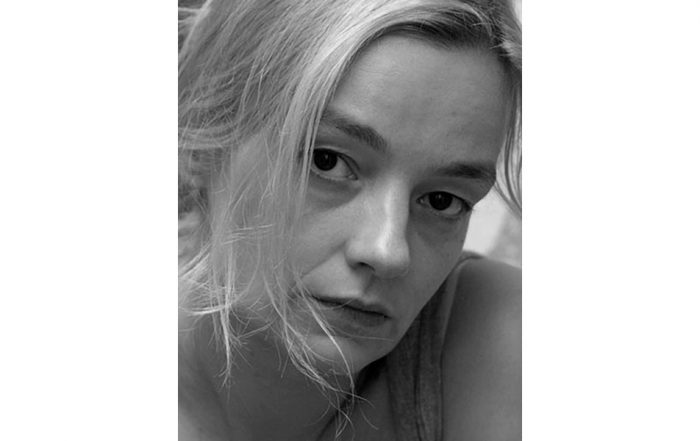
14 & 15 July
NATIONAL THEATRE OF GREECE
LENA KITSOPOULOU
The Wasps by Aristophanes
Provocative artist Lena Kitsopoulou makes her directorial debut in Epidaurus, staging an adaptation of Aristophanes’ biting comedy. In The Wasps, the poet ingeniously parodies Athenians’ obsession with resolving their differences in the courtroom and the loopholes of the legal system which allow crooks to manipulate justice to their benefit. Sixty years after Alexis Solomos’ production, the National Theatre of Greece invites the subversive artist to share her perspective on the critical questions posed by Aristophanes’ play, mocking contemporary problematic issues in her own, unique manner.
Translated by Stelios Chronopoulos • Dramaturgy – Adaptation – Directing Lena Kitsopoulou • Set and costume design Magdalini Avgerinou • Music Nikos Kypourgos • Lighting design Nikos Vlasopoulos • Assistant to the director Marilena Moschou • Cast (in alphabetical order) Nikos Karathanos, Lena Kitsopoulou, Emily Koliandri, Giannis Kotsifas, Ioanna Mavrea, Panos Papadopoulos, Konstantinos Plemmenos, Thodoris Skyftoulis • A National Theatre of Northern Greece co-production
Full cast and credits to be announced shortly.
*
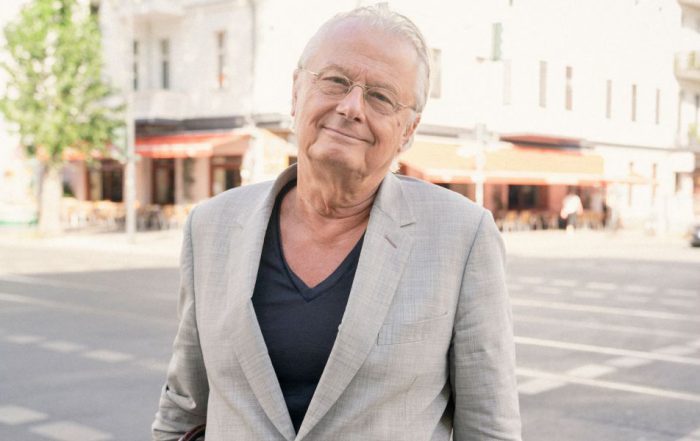
21 & 22 July / WORLD PREMIERE
FRANK CASTORF
Medea
Based on Euripides
The initiative of commissioning internationally acclaimed European directors to stage ancient plays, launched in 2021 with the invitation extended to Thomas Ostermeier and resuming in 2022 with world premieres by Johan Simons and Ulrich Rasche, continues this year. The Festival invites Frank Castorf in Epidaurus for the first time, where he is set to present Medea in a performance that will lend an international flavour to this year’s programme. The avant-garde artist and historic director of Berlin’s Volksbühne, who has left his mark on the so-called “German style” since the 1990s, will collaborate with major Greek theatre actors, bringing together an anarchic mode of acting, improvisation and freedom in performing, and delivering an electrifying directorial perspective.
Castorf was introduced to the Festival audience in 2007 with Nord (1960), the first part of Louis-Ferdinand Céline’s German Trilogy. He returned in 2017 with The Gambler, based on Dostoevsky’s eponymous work, on the occasion of that year’s tribute to Volksbühne.
Castorf’s theatre is extreme and innovative, drawing on an intensely visual language and a strikingly contemporary, intense mode of acting. He frequently weaves together diverse texts regardless of their original era, aiming to highlight the reflections and philosophical confrontations lurking beneath each story.
Translated by Giorgos Chimonas (Medea by Euripides) / Helene Varopoulou (Medeamaterial by Heiner Müller) • Directed by Frank Castorf • Set design Aleksandar Denic • Costume design Adriana Braga-Peretzki • Music William Minke • Lighting design Lothar Baumgarte • Video Andreas Deinert • Artistic production management Sebastian Klink • Cast (alphabetically) Nikolas Chanakoulas, Stefania Goulioti, Sofia Kokkali, Maria Nafpliotou, Angeliki Papoulia, Nikos Psarras, Evdokia Roumelioti, Aineias Tsamatis • Executive production BEE DRAMAQUEENS / Rena Andreadaki, Zoe Mouschi

28 & 29 July
EFI BIRBA
The Frogs by Aristophanes
A comedy with tragic DNA
Athens goes through a deeply political and cultural crisis, a crisis of institutions and values. Amid the barren and bleak reality of the polis, Dionysus, father and inspirer of theatre, embarks on a descent to the Underworld to retrieve the seed of resurrection, i.e. poetry, and save the world from collapse. Accompanied by Xanthias and the sound of frogs, after a string of comical and paradoxical encounters he arrives at Hades, intent on resurrecting the Poet. The one who can confront the impending disaster.
The weaknesses of both the living and the dead emerge through the cracks of this play’s comical vein, while reality’s malodorous waters are being stirred. Through his grand vision of saving the world, Dionysus’ descent to Hades simultaneously becomes a descent to the very mechanism of theatre.
Translated by Konstantinos Blathras • Directing – Set design Efi Birba • Adapted by Efi Birba, Aris Servetalis, Konstantinos Blathras • Music Constantine Skourlis • Lighting design Giorgos Karvelas • Costume design Efi Birba, Vassilia Rozana • Movement Michalis Theofanous • Assistant to the director – Artistic collaboration Dafni Antoniadou • Assistant to the set designer – Artistic collaboration Vasia Lyri • Assistant to the costume designer – Artistic collaboration Alexandros Garnavos • Sound consultant Nicholas Kazasis • Cast (in alphabetical order) Nancy Boukli, Alexandra Kazazou, Hector Liatsos, Mary Mina, Electra Nikolouzou, Kyriakos Salis, Michalis Sarantis, Aris Servetalis, Michalis Theofanous, Argyris Xafis • Production Choros Technis • An Athens Epidaurus Festival co-production
*
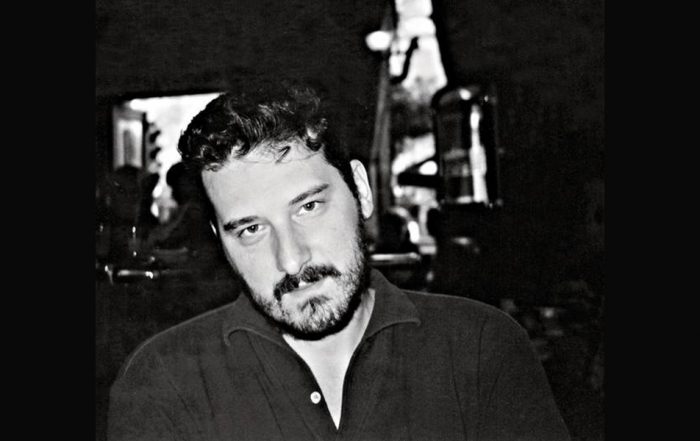
4 & 5 August
GIORGOS SKEVAS
Oedipus at Colonus by Sophocles
“Light, angelic and black, / laughter of waves on the sea’s highways / tear-stained laughter, the old suppliant sees you / as he moves to cross the invisible fields / light mirrored in his blood, / the blood that gave birth to Eteocles and Polynices” (trans. E. Keeley). The “angelic” and “black light” that the blind Oedipus, the old suppliant, “sees”, as George Seferis writes in his poem “Thrush”, stands for both his devastation and his vindication, his unsure passage to this other place, the invisible fields of the Eumenides’ grove, which shall welcome and devour him.
This performance brings to the fore the ambiguous, pending finale of a character marked by fate. How can this oscillation between justice and injustice, acceptance and refusal of one’s fate, be enacted on stage? Sophocles’ language, the words uttered by his characters, Oedipus, Antigone, Ismene, Polynices, Creon, do not invite a definitive separation of good from evil, the sacred from the blasphemous. Through the bodies’ music, this language becomes an eternal place, the eternal oracle. Giorgos Skevas’ production seeks to unleash this language and its deeply poetic, prophetic power.
Translated by Chrysa Prokopaki, Thanos Tsaknakis • Directed by Giorgos Skevas • Dramaturgy Giorgos Skevas, Chrysa Prokopaki • Set and costume design Chloe Obolensky • Music Simi Tsilali • Lighting design Lefteris Pavlopoulos • Cast (in alphabetical order) Alexandra Aidini, Dimitris Katalifos, Maximos Moumouris, Angeliki Papathemeli • An Athens Epidaurus Festival co-production
Full cast and credits to be announced shortly.
*
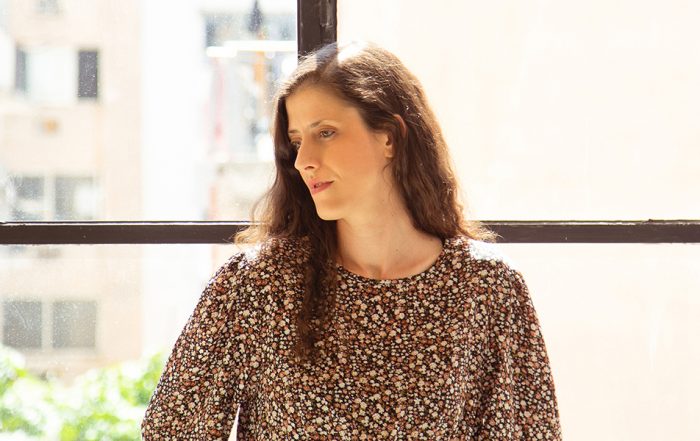
11 & 12 August
IO VOULGARAKI
Hecuba by Euripides
Our screens are daily inundated with images of war, images of unspeakable violence and agony from every place in the world. The absurdity of war seemingly concerns only those who experience it; for the rest of us, it is packaged as a dry, virtual and harmless piece of information, buried amid numerous other news and disconnected from the experience of mourning. We are thus familiarized with the image and information of violence; we are trained in death yet we have unlearnt how to mourn.
In Euripides’ eponymous tragedy, Hecuba emerges as a character from a place we have all of us forgotten: the place of mourning. In the first part of the play, mourning, both individual and collective, seemingly gives birth to its metaphysics: the living and the dead are locked in a constant dialogue; an unburied boy disrupts his mother’s sleep; a girl stands on the border between life and death. In Hecuba, everything unfolds at a liminal time, after the end of the war. Nevertheless, violence is not over yet. It is precisely here, at this transitional time, where mourning-style Hecuba becomes revenge-style Hecuba, opening up a provocative dialectics with the present.
A large ensemble of brilliant actors and musicians, along with Helene Varopoulou’s new translation made especially for this performance, are the cornerstones of this endeavour.
Translated by Helene Varopoulou • Directed by Io Voulgaraki • Set and costume design Magdalini Avgerinou • Music Nikos Galenianos • Assistant to the set designer Dimos Klimenof • Movement Chara Kotsali • Lighting design Alekos Anastasiou • Cast (in alphabetical order) Iosis Iosifidis, Marina Kalogirou, Eleni Kokkidou, Thanasis Kourlampas, Erikos Miliaris, Ileana Balla, Akis Sakellariou, Alekos Syssovitis • Chorus Niovi Charalambous, Elisavet Giannopoulou, Maria Konstanta, Efstathia Lagiokapa, Lygeri Mitropoulou, Chrysa Toumanidi, Amalia Tsekoura • Musician on stage Artemis Vavatsika
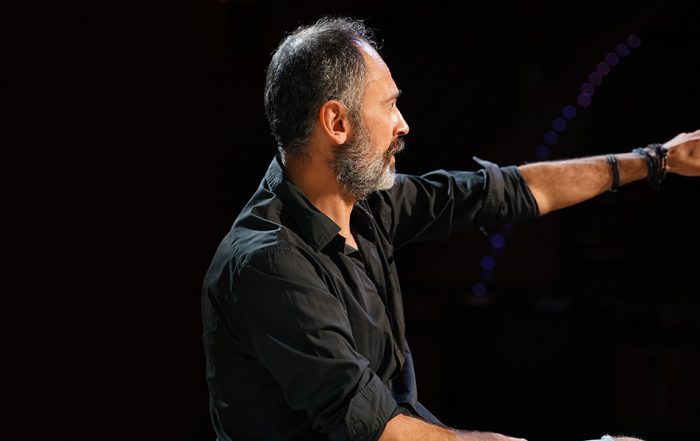
18 & 19 August
NATIONAL THEATRE OF NORTHERN GREECE
CHRISTOS SOUGARIS
The Trojan Women by Euripides
The Trojan Women, the only extant tragedy of Euripides’ trilogy about the Trojan War, was premiered in 415 BC at the Great Dionysia. The play was written shortly after the destruction of Melos in 416 BC, in which Athens, demonstrating unspeakable cruelty, killed all the adult men on the island and sold women and children as slaves.
Euripides attempts to warn us about the consequences arising from the victors’ impunity and also remind us of the importance of remaining human, away from a false sense of omnipotence caused by temporary victories. In The Trojan Women, the poet showcases the human dimension of the enemy. By focusing on the greatness of the Trojan women, he foregrounds that power which makes humans persevere even in the wake of catastrophe.
A recipient of the 2018 Young Theatre Artist award by the Union of Greek Critics for Drama and Music, director Christos Sougaris, head of the National Theatre of Northern Greece artistic programming, presents a novel take on Euripides’ masterpiece.
Translated by Theodoros Stefanopoulos • Directed by Christos Sougaris • Musical composition – Orchestra performance Stefanos Korkolis • Set and costume design Eleni Manolopoulou • Lighting design Alekos Anastasiou • Cast (in alphabetical order) Alexandros Bourdoumis, Maria Diakopanagiotou, Antonis Kafetzopoulos, Roula Pateraki, Dimitris Piatas, Mariza Tsari
Full cast and credits to be announced shortly.
*
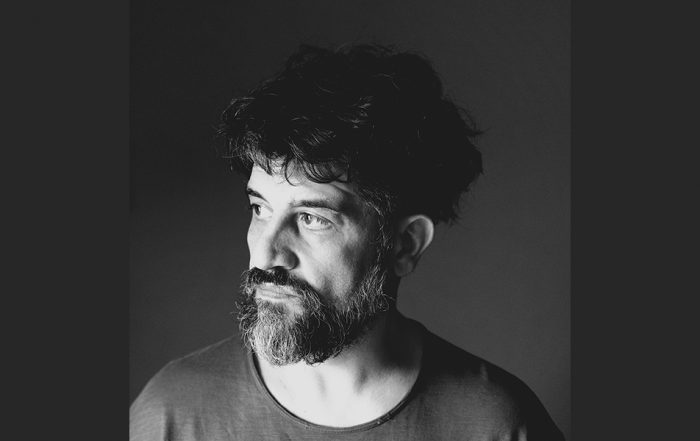
25 & 26 August
SIMOS KAKALAS
Oedipus Rex by Sophocles
Never before have we in human history ever “looked” so far away inside the cosmos and so deeply inside humans. Very often, in the brink of destruction, we realize that the evil we are fighting against is, in fact, ourselves. Oedipus’ face is humanity itself in front of the mirror. Having found the culprit, he reaches the point where it is imperative that he make a choice, even at the eleventh hour, even after he has already committed the gravest error.
In this performance, approached as a ritual of purification, a group of actors wearing masks of Elders comprises the writhing, mourning Chorus in agony. Through this Chorus, the tragic characters, namely Oedipus, Jocasta, Teiresias and Creon, are revealed.
Translated by Giorgos Blanas • Directed by Simos Kakalas • Dramaturgy Elena Triantafyllopoulou • Set design Giannis Katranitsas • Costume design Angelos Mentis • Music and musician on stage Fotis Siotas • Movement Sofia Paschou • Lighting design Alekos Yiannaros • Masks Martha Foka • Production manager Anastasia Kavallari • Executive production Kart Productions – Maria Xanthopoulidou • Communication Anzelika Kapsampeli • Cast (in alphabetical order) Giorgos Amoutzas, Yannis Dalianis, Simos Kakalas, Christos Malakis, Anna Mascha, Konstantinos Moraitis, Yannis Stankoglou and 7 more actors • Production Theatrika Dromena Iasmos
Full cast and credits to be announced shortly.
*
![]()
7 July – 26 August
Children’s creative workshop in Epidaurus
The successful theatre education programme continues this year, familiarizing children with the wonderful and mysterious world of ancient myths. Concurrently with grown-up audiences fully immersed in performances at the Ancient Theatre of Epidaurus, children are creatively engaged, approaching the content of the play watched by the adults. A team of experienced theatre educators and facilitators of music/movement and aesthetic education are participating in the programme.
Fridays and Saturdays
during the performance at the Ancient Theatre of Epidaurus
For children aged 5 – 12
As part of the International Network of Ancient Drama
LITTLE THEATRE OF ANCIENT EPIDAURUS
STUDIO RESIDENCY
25 June – 2 July
Parodos
Parodos, the interdisciplinary research programme launched in 2021 and aiming to renew approaches on Ancient Drama dramaturgy, is back this year, drawing inspiration from the theme of freedom, with Aeschylus’ Prometheus Bound as its starting point. For the third year in a row, the Athens Epidaurus Festival will hold a studio residence at the Little Theatre of Ancient Epidaurus, wishing to provide artists from diverse fields with the opportunity to proceed with their research in situ and under ideal conditions. More specifically, the programme is addressed to young artists who have completed their studies in theatre directing, dance and/or choreography, acting, theatre studies, opera in Greece or abroad within the last 6 years.
This year director and dramaturg Argyro Chioti has been tasked with the general coordination and supervision of the programme. Chioti is joined by internationally established artists, namely Jean-Yves Ruf, director, dramaturg, actor and educator at Rencontres Internationales de Mise en Scène (RIMES) and Chantiers Nomades, among other institutions; Lisaboa Houbrechts, dramaturg and director who began her creative career as member of the Need Company (Jan Lauwers) and also studied under Alain Platel; and Eric Vautrin, dramaturg, main collaborator of Théâtre Vidy-Lausanne, Philippe Quesne’s collaborator and professor/researcher of the performing arts.
Approaching the stage in a comprehensive manner wherein speech, body, voice, body, music all work together and complement each other, this year’s Parodos embraces both the dramaturgy of language as well as research on movement and voice, opera singing and the quality of chorus, always in connection with Ancient Drama and its contemporary onstage renditions.
The team will initially work in Athens (20 – 24 June) and subsequently at the Little Theatre of Ancient Epidaurus (26 June – 1 July).
The programme will come to a close on 2 July with an open rehearsal and discussion among the members of the artistic team, programme coordinators and the Artistic Director of the Athens Epidaurus Festival.
As part of the International Network of Ancient Drama
*
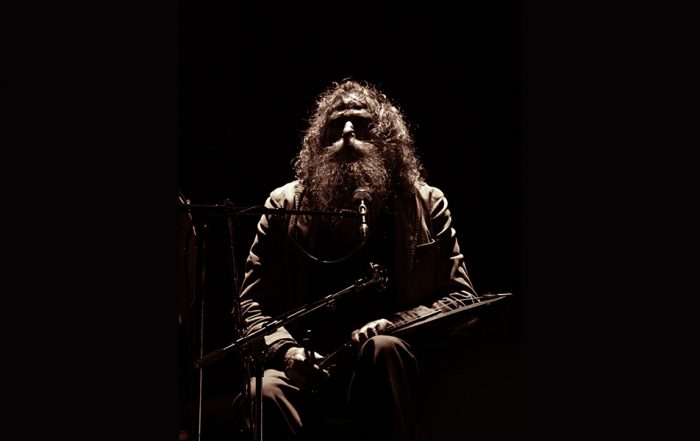
GREEK MUSIC
8 July
PSARANTONIS
It is not easy to talk about Psarantonis without falling into clichés. Besides, there’s not much that hasn’t already been said about this one-of-a-kind artist who has been enriching Cretan, Mediterranean and the world cultural heritage with his music for 60 years now.
Otherworldly, ageless and deeply earthy as a person, in each of his concerts he bewitches audiences with his unparalleled virtuosity in Cretan lyre, delivering remarkable performances. With his feet firmly in the past, he improvises and creates a new tradition; he growls and brings the primal sound of Crete alive.
This year, the 85-year-old great lyre player will welcome the Festival audience at the Little Theatre of Ancient Epidaurus.
Psarantonis lyre, vocals, mandolin, George Xylouris lute, vocals, Lambis Xylouris, oud, vocals, Niki Xylouri bendir, stamna, vocals • Also featuring Maria-Christina Harper electric harp, effects, George Koutras 12-string guitar, electric guitar • Executive production United We Fly

THEATRE / PREMIERE
CONTEMPORARY ANCIENTS
14 & 15 July
EMILY LOUIZOU
Symptoms of Weightlessness
By Gianni Skaragas
Inspired by Aeschylus’ Eumenides
Is our fate a second chance we were given? Can we escape our character because we were loved dearly? 19 July 1969: Two days before humanity’s first moon landing, the lawyer of a young man who was acquitted for his mother’s murder visits the country house of his client’s family, accompanied by his wife. What initially seemed like a leisure trip escalates into a violent, psychological story, rife with well-hidden secrets and twists…
Inspired by Aeschylus’ Eumenides, the play Symptoms of Weightlessness by internationally acclaimed playwright Gianni Skaragas is a story about the heaviness of traumatic memories and human character, which carries the same, unbearable darkness, regardless of whether it is found in a different planet or era.
Under the helm of Emily Louizou, a young, London-based director, the performance transports us inside a purgatory, where characters arrive in order to be purified. Even though the Areopagus has acquitted Orestes, the actual trial takes place now as a close-door session. Memory is fluid and the Erinyes are invariably present: no matter how much they are appeased, the scar will remain open, akin to a perpetual injury.
Directed by Emily Louizou • Set design Thalia Melissa • Costume design Niki Psyhogiou • Musical composition Irene Skylakaki • Movement Alkistis Polychroni, Ioli Filippakopoulou • Lighting design Christina Thanasoula • Assistant to the director Nina Frantzeskaki • Sound engineer Kostis Pavlopoulos • Production technical coordination Nikos Charalambidis • Cast (in alphabetical order) Eleni Boukli, Syrmo Keke, Nefeli Kouri, Christina Maxouri, Emilianos Stamatakis, Melachrinos Velentzas • Executive production Polyplanity Productions / Yolanda Markopoulou, Vicky Strataki
*
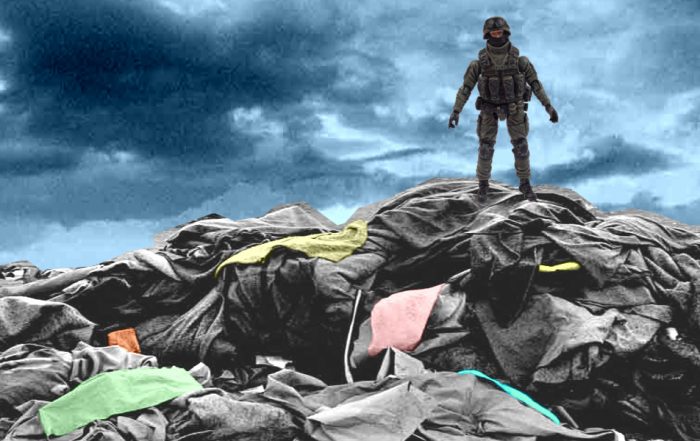
THEATRE / PREMIERE – grape
CONTEMPORARY ANCIENTS
21 & 22 July
PANTELIS FLATSOUSIS
Thebes: A Global Civil War
Inspired by Aeschylus’ Seven Against Thebes
Which processes of memory are being activated when entire societies are being faced with enormous collective and unhealed personal traumas of civil war? Can we narrate them on stage, using the ancient myth as a springboard in order to create a new universal narrative?
In Aeschylus’ Seven Against Thebes, a man embarks on a military campaign against his brother and city. Ultimately, they both die, killing each other. The war may not be exactly civil; it is most certainly fratricidal though. In today’s historical circumstances, where the local and the global meet, could the bleak possibility of a World War III look like a global civil war?
Following National Fashion Show, presented on the occasion of the 1821 Bicentennial tribute, Pantelis Flatsousis once again investigates the connection between the stage and recent history, using documentary theatre as a vehicle and this time focusing on the phenomenon of civil war. Presenting onstage narratives of people who experienced civil war in their countries in recent years, the performance, specially conceived and commissioned to be presented at the Little Theatre of Ancient Epidaurus as part of the Contemporary Ancients cycle, explores the reality of civil war through its impact on what is, arguably, its most sensitive aspect: individual memory; that place where individual and collective identities interact to such an extent they can be viewed as “geopolitical identities”.
Four professional actors from different countries (Bosnia, Greece, Democratic Republic of the Congo, Lebanon) are transformed into narrators/mediators between the local and the global, the topical and the eternal, in a performance walking a fine line between documentary and fiction, theatre and cinema, in dialogue with Seven Against Thebes. Jointly with the spectators, they investigate why war, though loathed by everybody, continues to shape human destiny.
Text assembled by Pantelis Flatsousis & the ensemble • Directed by Pantelis Flatsousis • Dramaturgy Panagiota Konstantinakou • Set and costume design Constantinos Zamanis • Origina musical composition Henri Kergomard • Video design and editing Constantine Nisidis • Lighting design Christina Thanasoula • Dramaturgy collaboration Ioanna Lioutsia • Scientific consultant Manos Avgerides • Assistants to the director Sonia Kalantzidou, Anna Karamanidou • Production managers Rena Andreadaki, Zoi Mouschi • Executive production Spectrum • Cast Vedrana Bozinovic, Racha Baroud, Albertine Itela, George Kritharas • With the participation of 2 musicians on stage
*
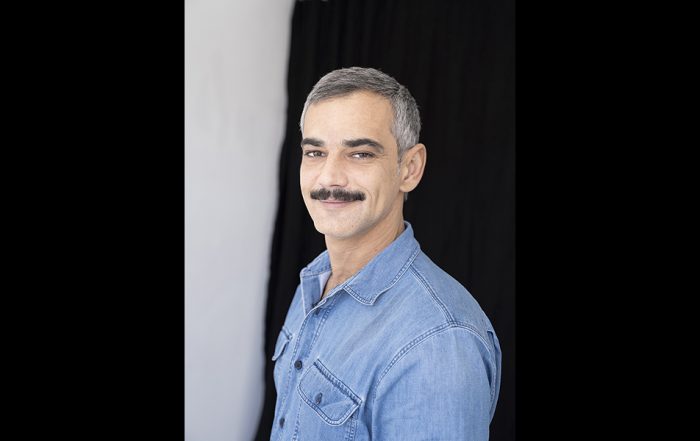
THEATRE / PREMIERE
CONTEMPORARY ANCIENTS
28 & 29 July
SARANTOS GEORGIOS ZERVOULAKOS
Philoctetes by Christos Ikonomou
Inspired by Sophocles’ Philoctetes
Author Christos Ikonomou, a recipient of the State Prize of Literature, the Prix Littéraire des Jeunes Européens, the Chowdhury Prize in Literature and the O. Henry Prize for Short Fiction, delivers the play he wrote after being commissioned by the Athens Epidaurus Festival for the Little Theatre of Ancient Epidaurus artistic programme, as part of the Contemporary Ancients Cycle.
Philoctetes is a leading member of an armed revolutionary organization. Following an unsuccessful rocket attack, which led to a young woman being mortally injured, he abandons the organization and finds refuge in a small Aegean Island. He is physically and mentally tormented by his guilt for his fatal error: he has aged prematurely, suffers from an open wound on his foot and hallucinates, seeing the dead woman’s ghost. Years later, two younger members of the organization, Kamia and Pyr, are tasked with travelling to the island, locating Philoctetes and convincing him to go back into action. Their encounter, taking place in the deserted beach where Philoctetes lives in isolation, will turn into a showdown that will prove to be fatal for all persons involved. Sarantos Georgios Zervoulakos is directing.
Directed by Sarantos Georgios Zervoulakos • Set and costume design Tina Tzoka • Music – Sound design Agatha • Lighting design Nikos Vlasopoulos • Cast (in alphabetical order) George Katsis, Galini Chatzipaschali, Lefteris Polychronis and and one more actor • Executive production Eteria Filon
*
THEATRE / PREMIERE
CONTEMPORARY ANCIENTS
4 & 5 August
TAKIS TZAMARGIAS
You Can’t Tie a Mustang Down
by Christos Chomenidis
Inspired by Euripides’ Ion
Two places, two worlds. One the one hand, Delphi, a utopia dating from the mythical times, now in the present, close to the Arachova ski resort and tavernas. On the other hand, Athens, complete with its immorality and political corruption. In between, a foundling, a childless couple, a chance encounter and all those things that could have been fixed. In the dizzying present times, Chomenidis’ Ion chooses a solitary and healthy co-existence with nature, its joys and feasts, and refuses to be involved in public affairs and their corrupting effect.
Using Ion, Euripides’ unclassifiable tragedy – it could perhaps be more aptly called an “ironic drama” – as his starting point, Christos Chomenidis has penned a play tackling – with a light touch but in a topical manner – fundamental, timeless questions, deep-rooted in every human: power, love, lust.
Takis Tzamargias is inspired by Chomenidis’ play to create a performance, setting up fancy tables with lavish tablecloths and copious amounts of champagne on the Delphi offerings, and urging spectators to partake in a Balkan feast.
Directed by Takis Tzamargias • Dramaturgy Irene Mountraki • Set and costume design Alexandros Garnavos, Gina Iliopoulou • Music Giorgos Chrysikos • Lighting design Georgia Tselepi • Movement Angeliki Trompouki • Assistant to the director Emilia Karantzouli • Second assistant to the director Nefeli Vlachopanagioti • Sound engineer Dimos Livitsanos • Production technical coordination Nikos Charalambidis • Cast (in alphabetical order) Gerasimos Gennatas, Evgenia Dimitropoulou, Lena Drosaki, Stelios Iakovidis, Gogo Brebou, Dimitris Fourlis • Executive production Polyplanity Productions / Yolanda Markopoulou, Vicky Strataki
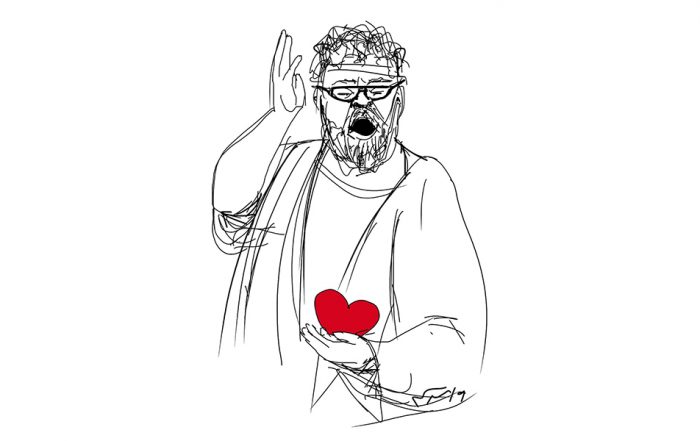
GREEK MUSIC
12 August
STAMATIS KRAOUNAKIS
Love Unconquered in Battle
Special guest Lydia Fotopoulou
Stamatis Kraounakis, a truly unique chapter in the history of contemporary Greek music, takes us along for a magical evening at the Little Theatre of Ancient Epidaurus, carrying us through his tender, harrowing and loving songs. The artist has prepared a great ride in his love songs throughout the decades; songs, which, according to the composer himself, “have kept company to Greeks in several occasions, in their loneliness, gatherings, private moments, from extremely well-known songs to others who survived in obscurity and will now be spotlighted in this theatre of assemblies and sacrifices”.
Stamatis Kraounakis piano, performance, arrangements, Dimitrios Andreadis piano, keyboards, arrangements Christos Gerontidis performance, Nikos Katsikis bouzouki, laúd, mandolin, arrangements, Kosmas Kokolis bouzouki, guitar, vocals Kostas Bougiotis performance, Theologos Papanikolaou performance, violin Lambros Papanikolaou double bass Yorgos Tamiolakis cello, arrangements • Narrator George Stivanakis
*
19 August
HELLENIC FILM ACADEMY
Film screening
Phaedra by Jules Dassin
A cinematic adaptation of Hippolytus, Euripides’ tragedy, Phaedra, starring the late and great Melina Mercouri in the title role and co-starring Anthony Perkins, is one of Jules Dassin’s best-known and most beloved films. Dassin himself and Margarita Lymperaki co-wrote the screenplay, while Mikis Theodorakis scored the music. Costume designer Deni Vachlioti was nominated for an Academy Award and Melina Mercouri was a Golden Globe nominee in the category Best Actress in a Motion Picture – Drama. The film screening will launch a collaboration between the Hellenic Film Academy and the Festival, while also being engaged in a sort of dialogue with the Ancient Theatre of Epidaurus programme.
The Epidaurus Festival kicks off with a production of Hippolytus, directed by Katerina Evangelatos at the Ancient Theatre and draws to a close with the movie adaptation of Phaedra at the Little Theatre of Ancient Epidaurus.

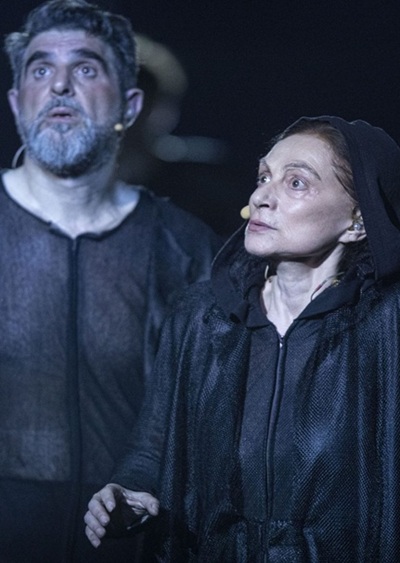
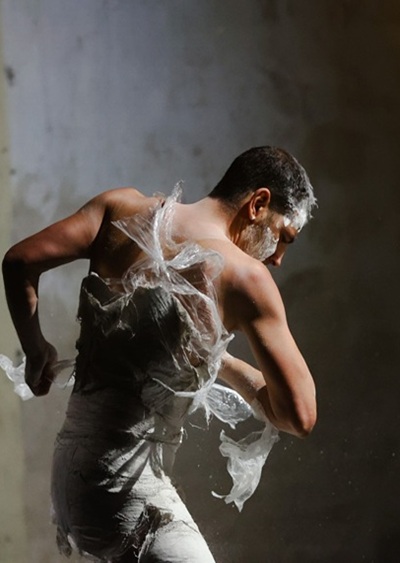
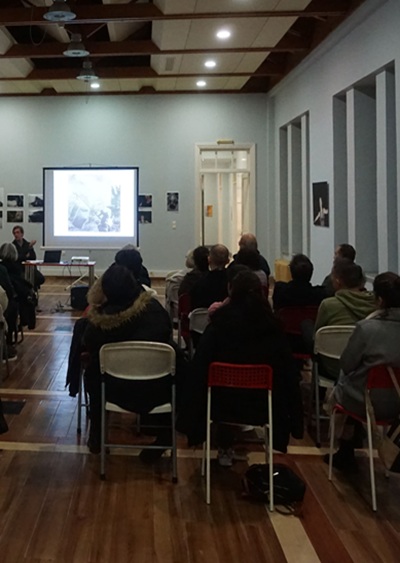
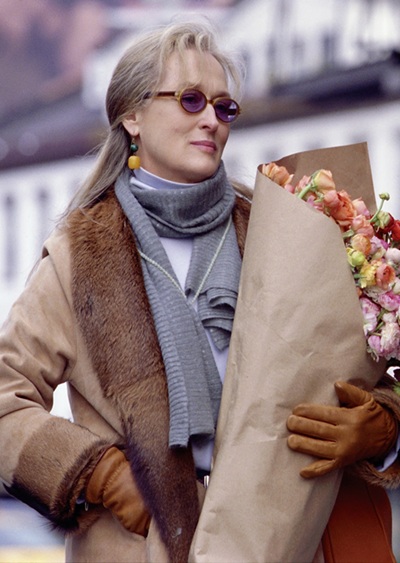


Leave A Comment